In Sweden it is not uncommon for asylum seekers to have to wait several years for the final resolution of their application. These long handling times cause deep stress and great emotional fatigue, leaving many in a fragile psychological state. This makes more difficult the process of integration into Swedish society that begins after obtaining the long-awaited residence permit.
Mimoza Selmonaj arrived in Sweden in 1998 from Kosovo. She did not flee the war, but her own family. They did not approve of the young man she had ran away with, and threatened to kill her. More than seven years later, she finally obtained the awaited residence permit. The difficult part seemed to be over. Now, the only thing to do was to establish herself in a new town, learn a new profession and integrate into a new society.
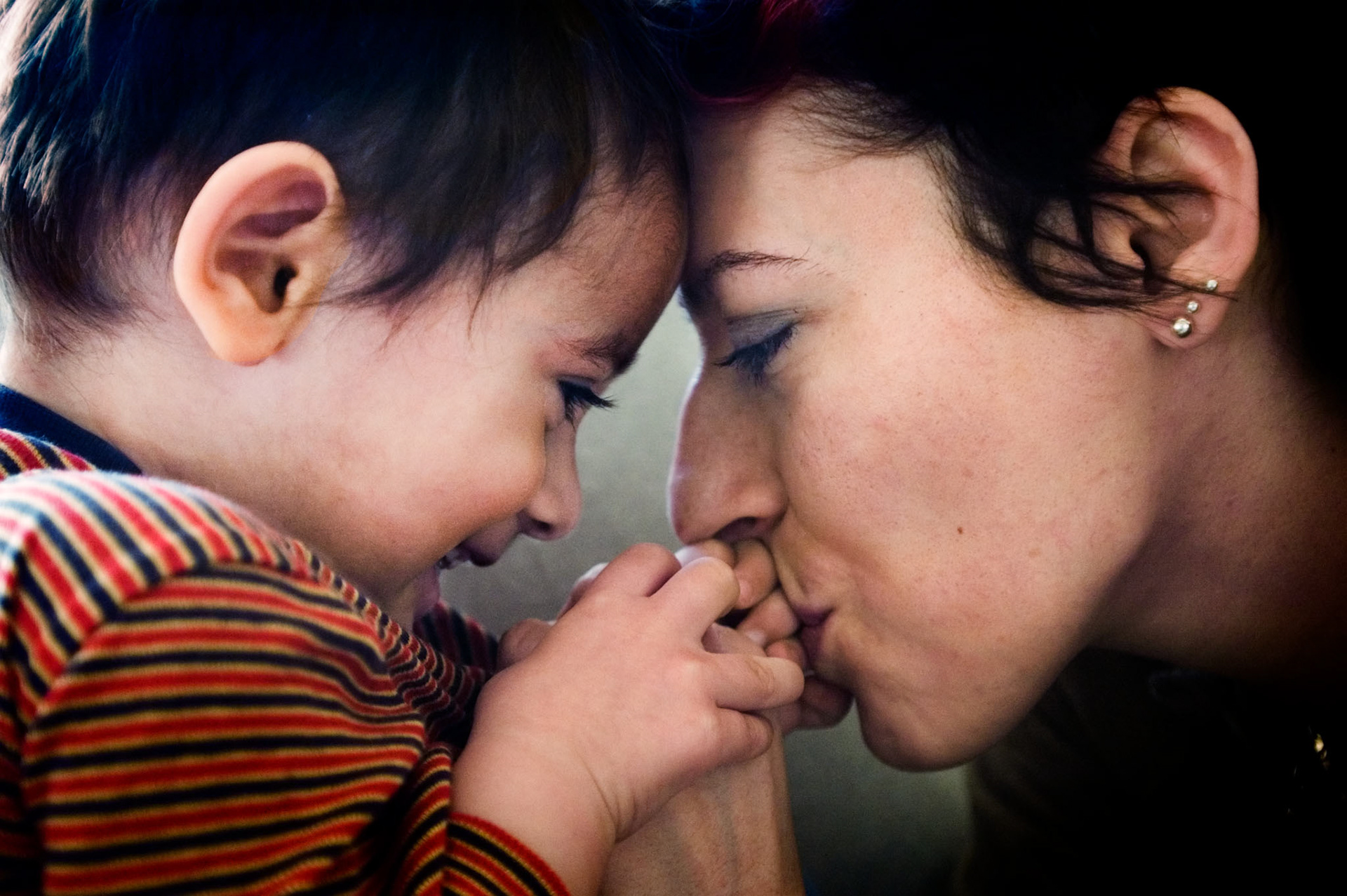
After seven long uncertain years, Mimoza Selmonaj was granted a residence permit. ”I have fought for my children, so that they can have a better life”, says Mimoza.
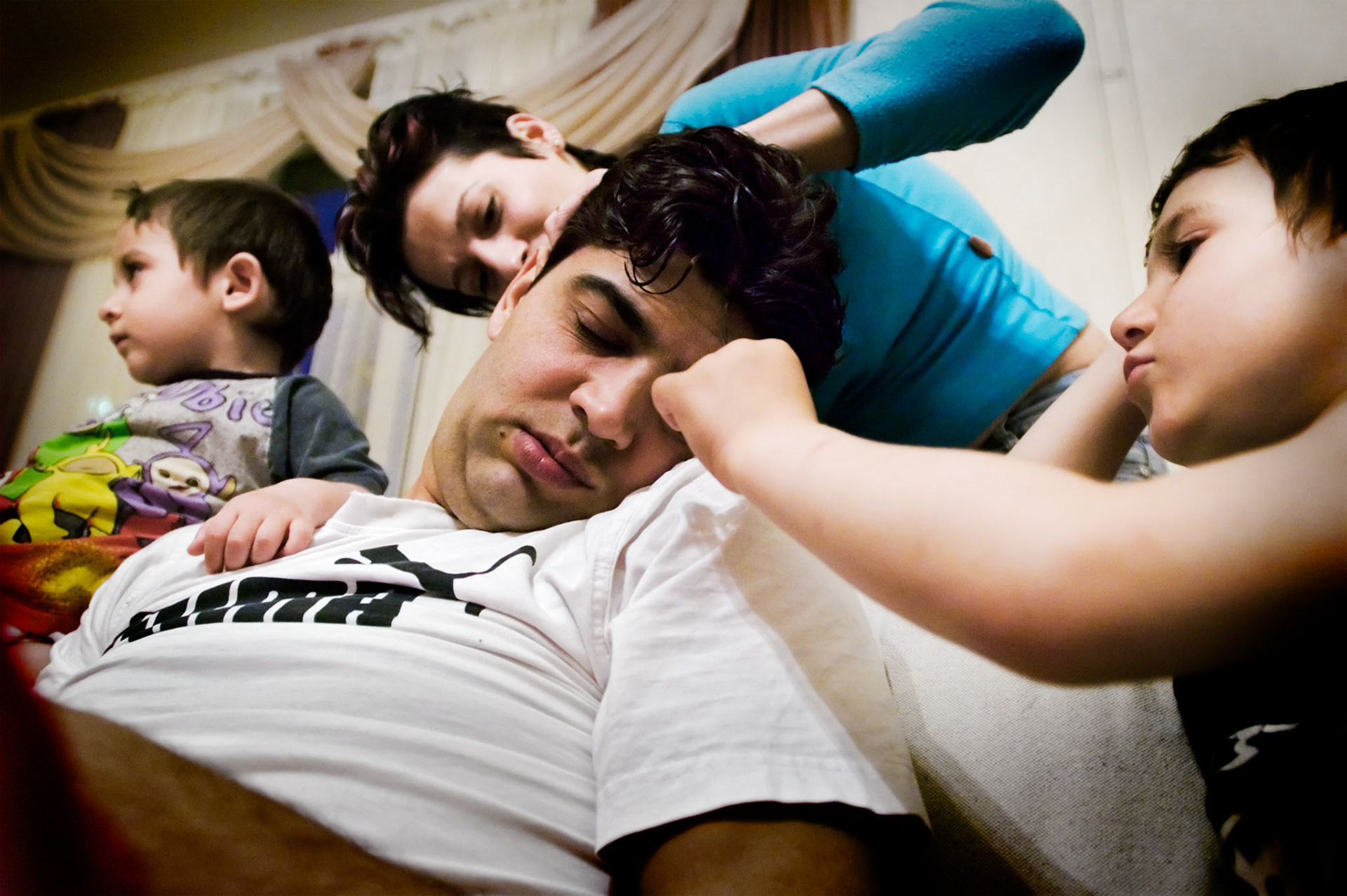
Mimoza’s husband left her after four years of being in Sweden, right after she gave birth to their second son, Eugen. He could not cope with the anguish of uncertainty, and left the country. Mimoza and Fanel Dudu met in a refugee center one year later, and have now a son together, Adrian.
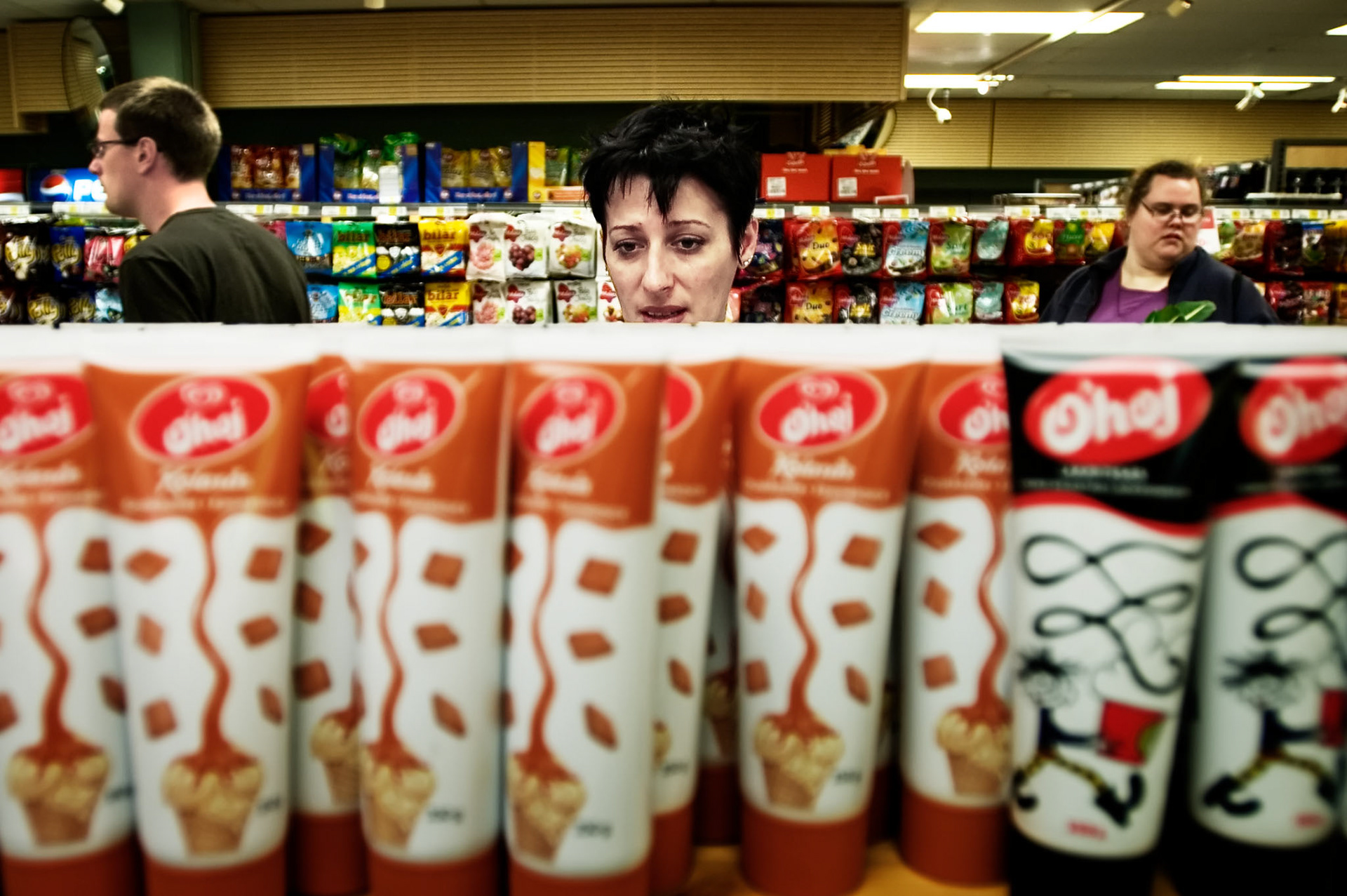
In spite of having lived in Sweden for seven years, it's not only until now that she can begin to integrate into society.
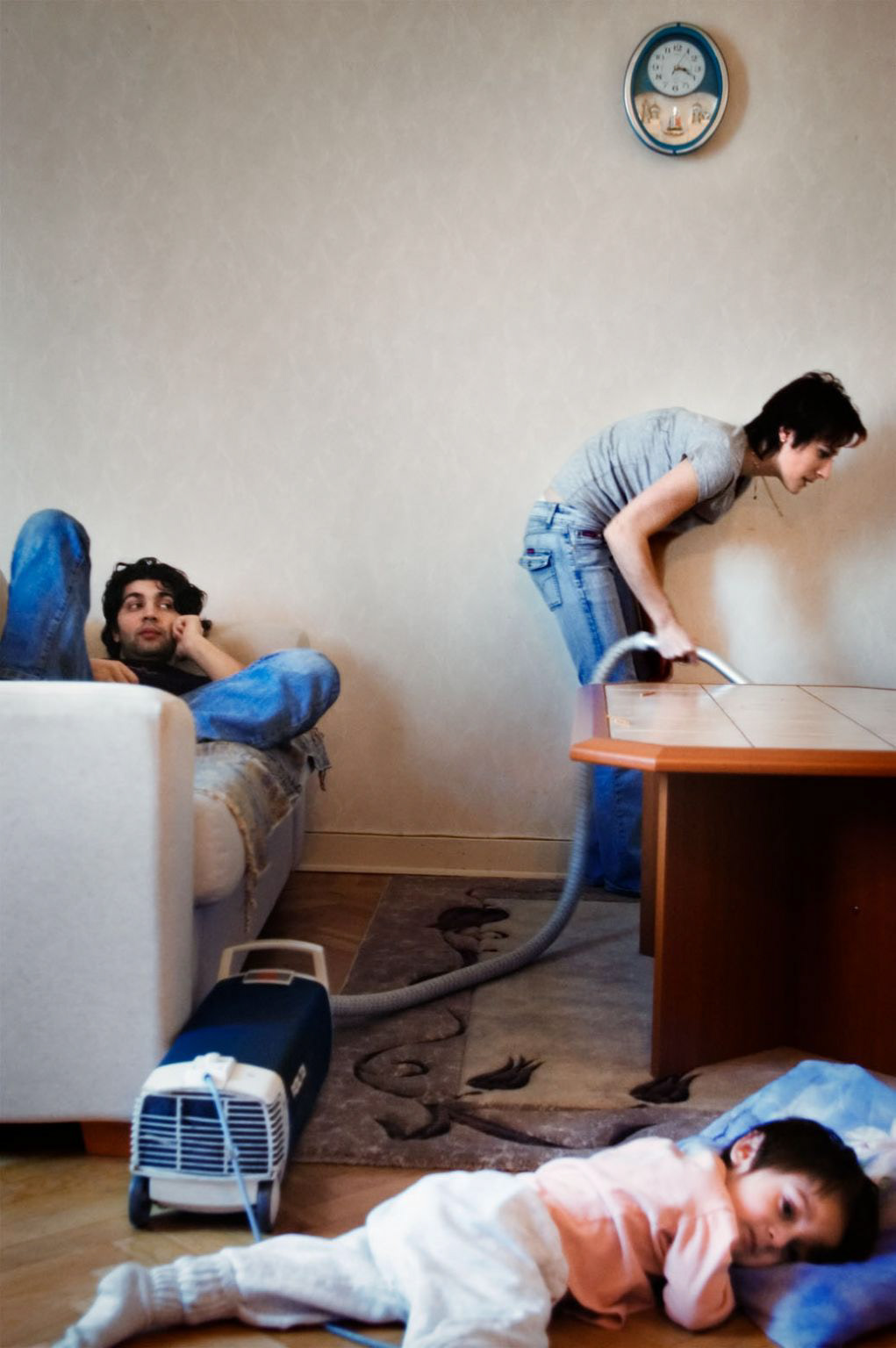
Since Fanel is not allowed to work while his residence permit application is handled, he stays home with Adrian while Mimoza is at the hairdressing salon where she is doing an internship. However, it is still Mimoza who takes care of most of the housework.
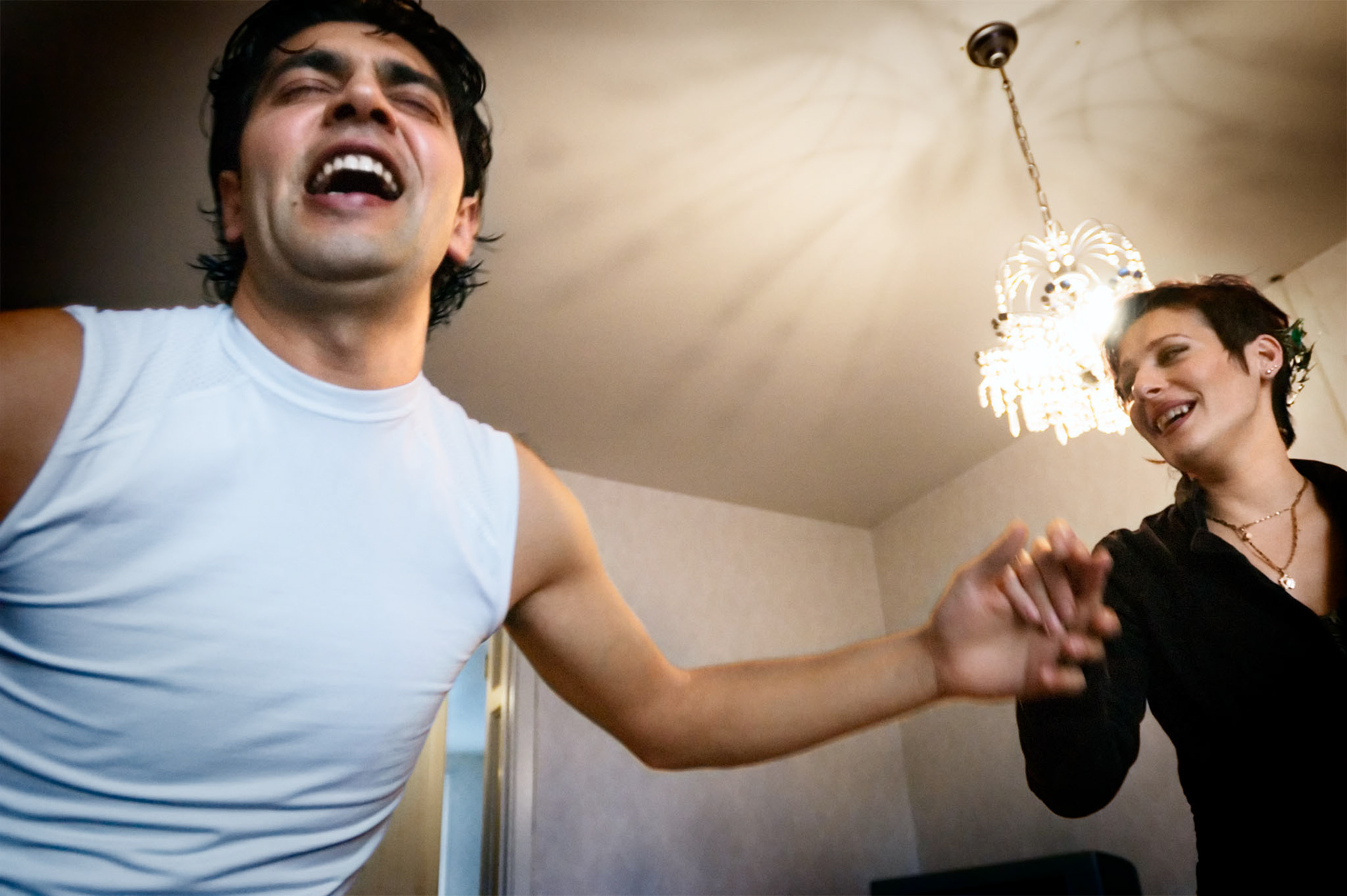
Fanel still doesn't have a residence permit. In order to increase his chance of obtaining it, they decide to get married.
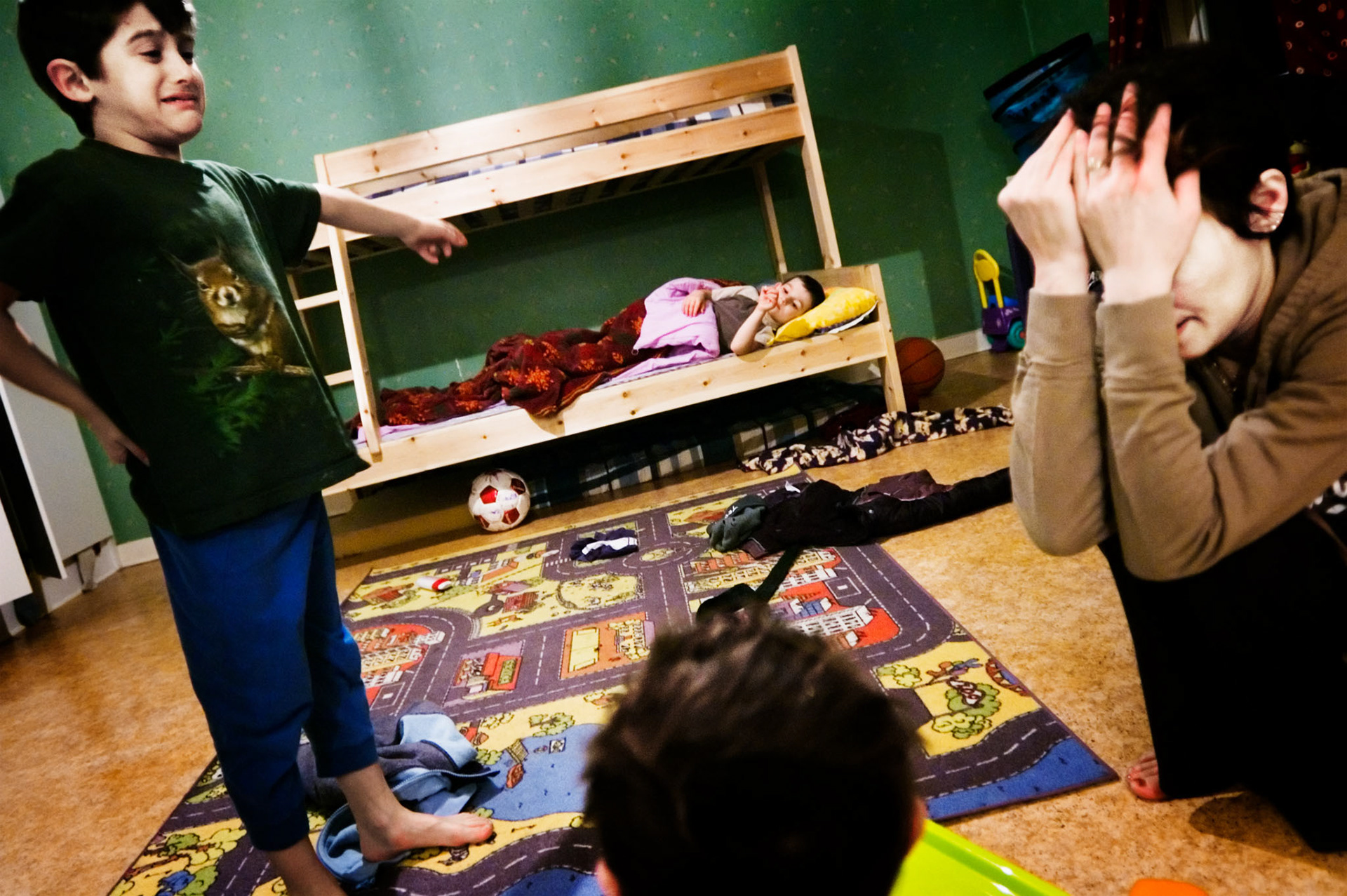
All of Mimoza’s children were born in Sweden as asylum seekers. The stress due to the usual fuss families with small children go through adds up for Mimoza to the uncertainty of Fanel's asylum process and the sequels of her own.

Mimoza has to wake up early, but she can't avoid staying up to enjoy the serenity that sets over the apartment when the children have gone to bed.
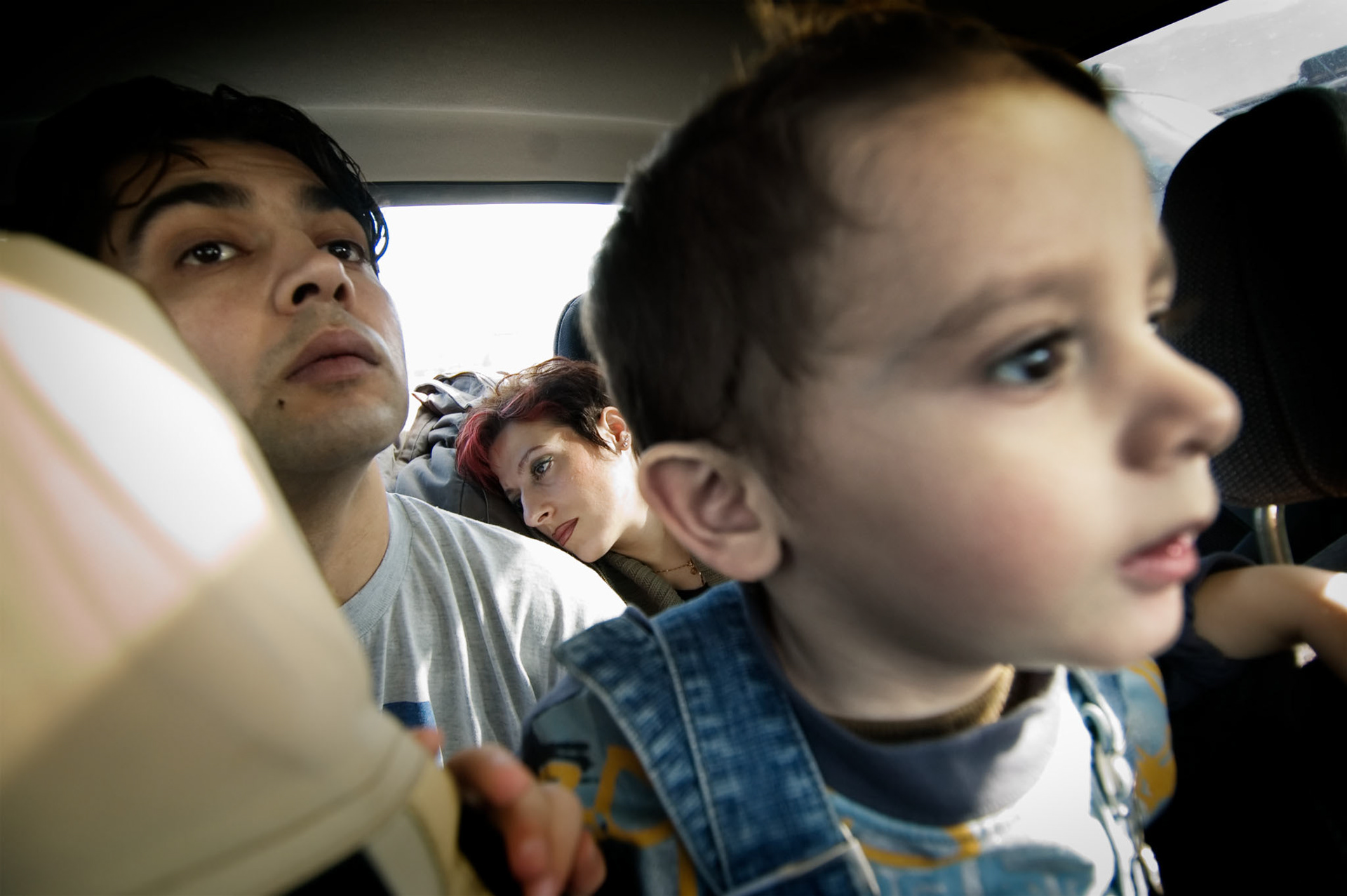
They are on their way to the Swedish Migration Board office in Kållered (just outside Gothenburg), a place that brings bad memories to Mimoza. Fanel hopes to get a residence permit on the grounds of family ties. Both he and Mimoza are to be interviewed.
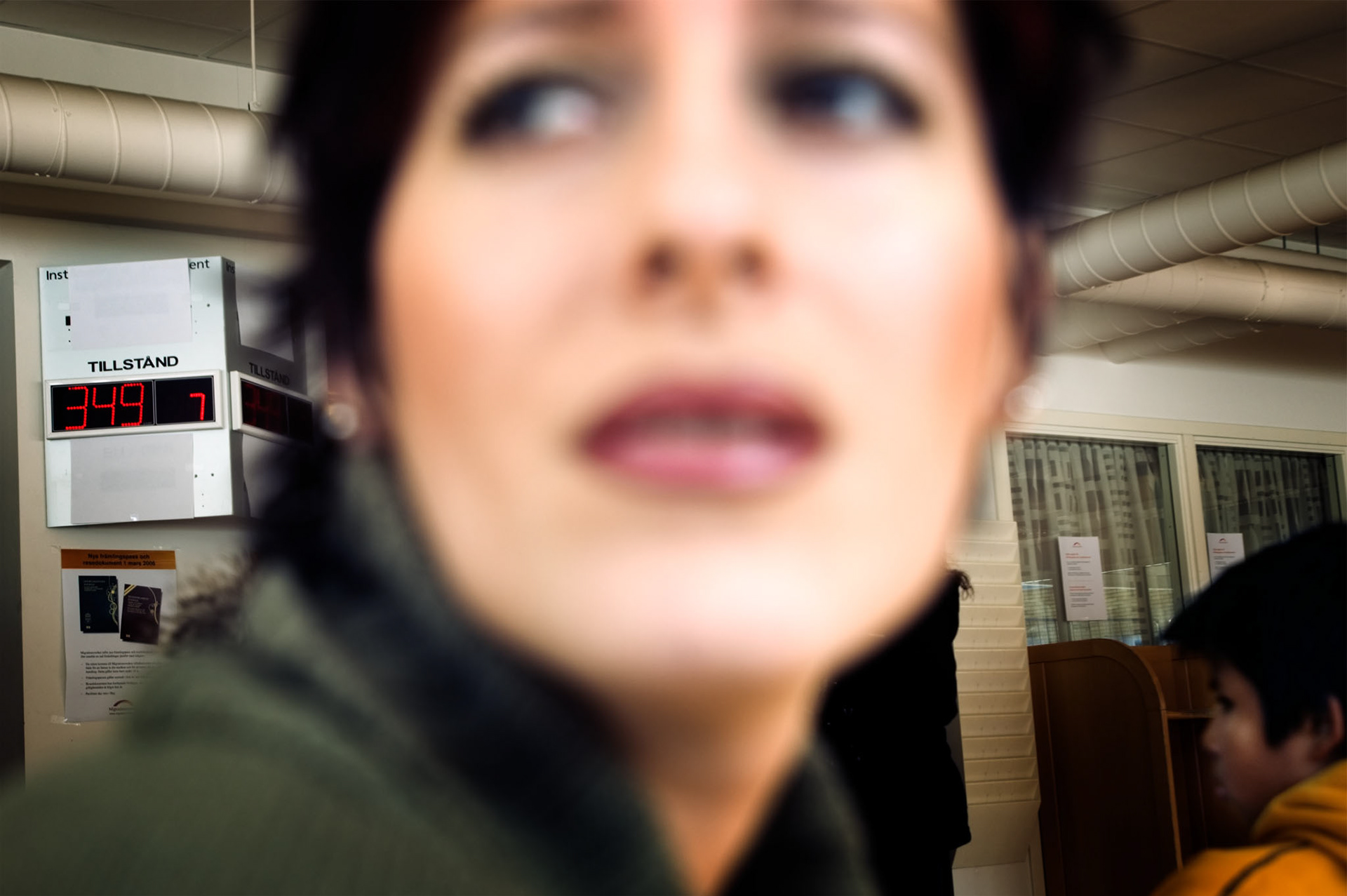
Mimoza meets the handling officer. “It was I who handled your case”, he says and shakes her hand. “And he gave me a negative resolution…” Mimoza sighs moments later in the waiting room.

Fanel has a fair chance to obtain the residence permit. They are married and have a child together, besides, Romania will become a EU-member soon. But, with all her bad memories from the asylum process still fresh, uncertainty hangs in the air.

When the internship period is over, Mimoza’s employer wants her to continue working at the salon… but for free.
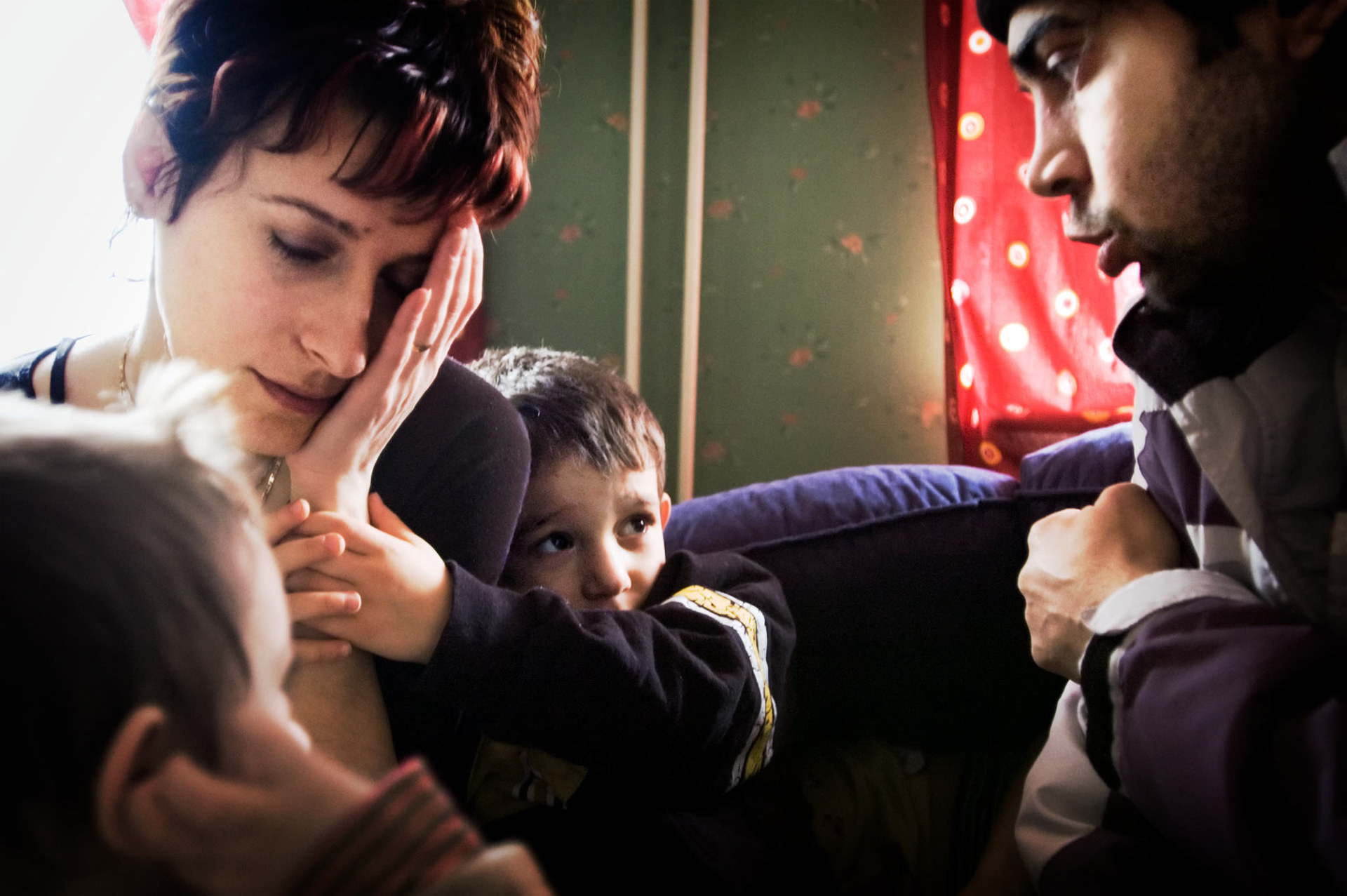
The problems with the internship and the accumulated stress of these seven years have taken their toll. Mimoza is put in sick leave for two months.
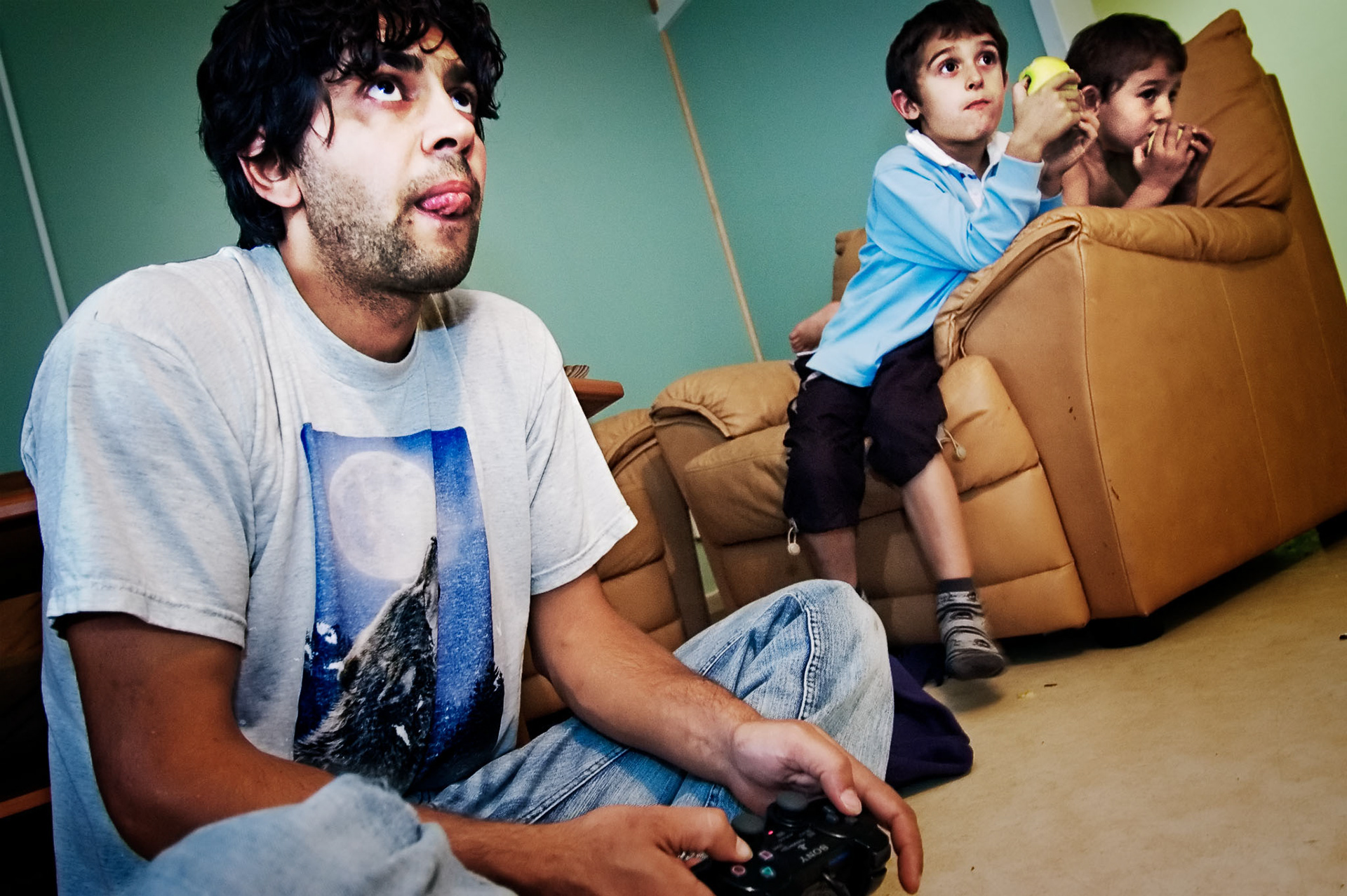
Fanel obtained the residence permit a couple of months ago, but he still hasn't been looking for jobs.
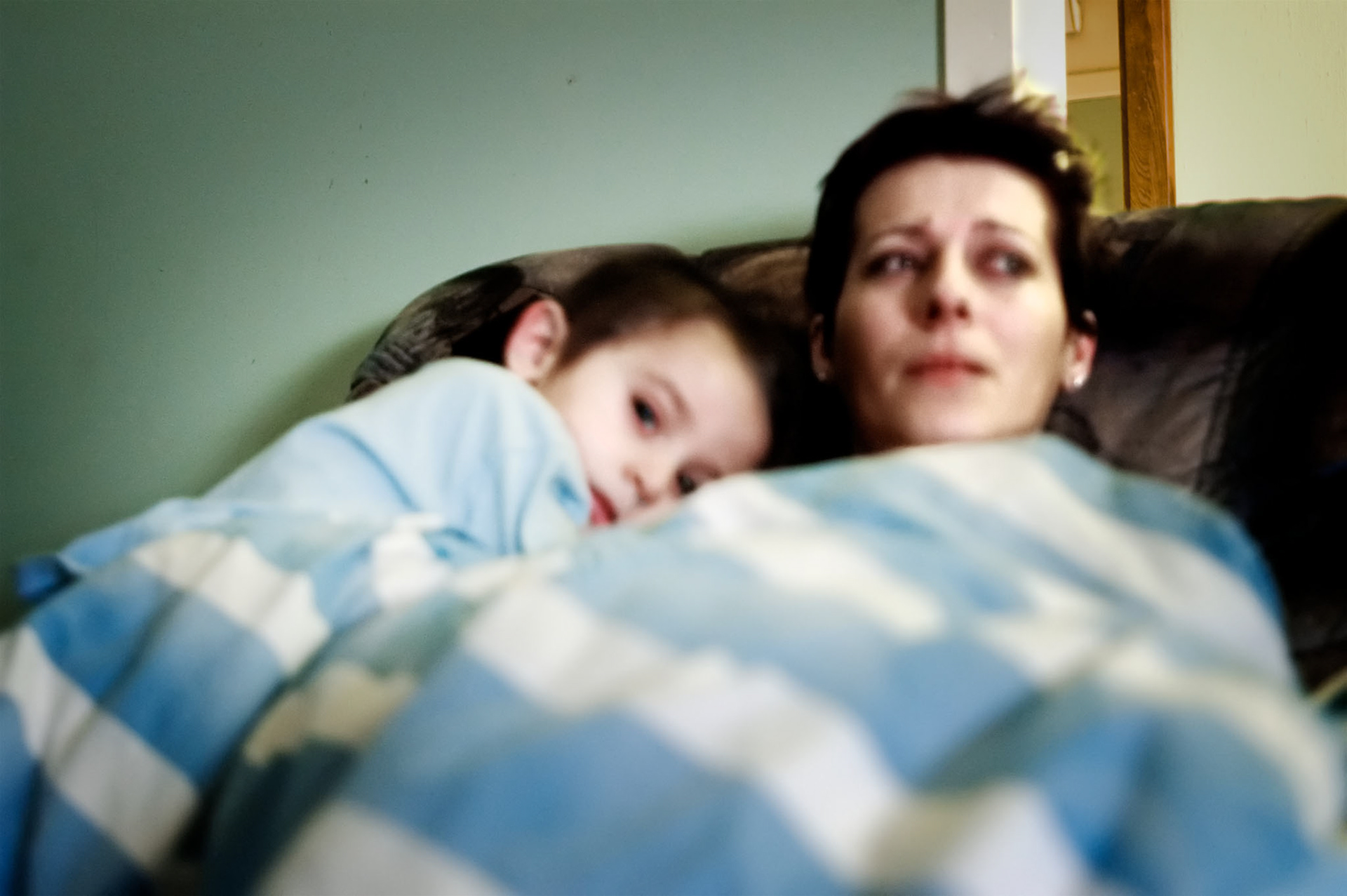
Mimoza finished the internship at the hairdressing salon, but she doesn’t find a job. Days go by, bills pile up, and she doesn’t know how they are going to solve their delicate financial situation.
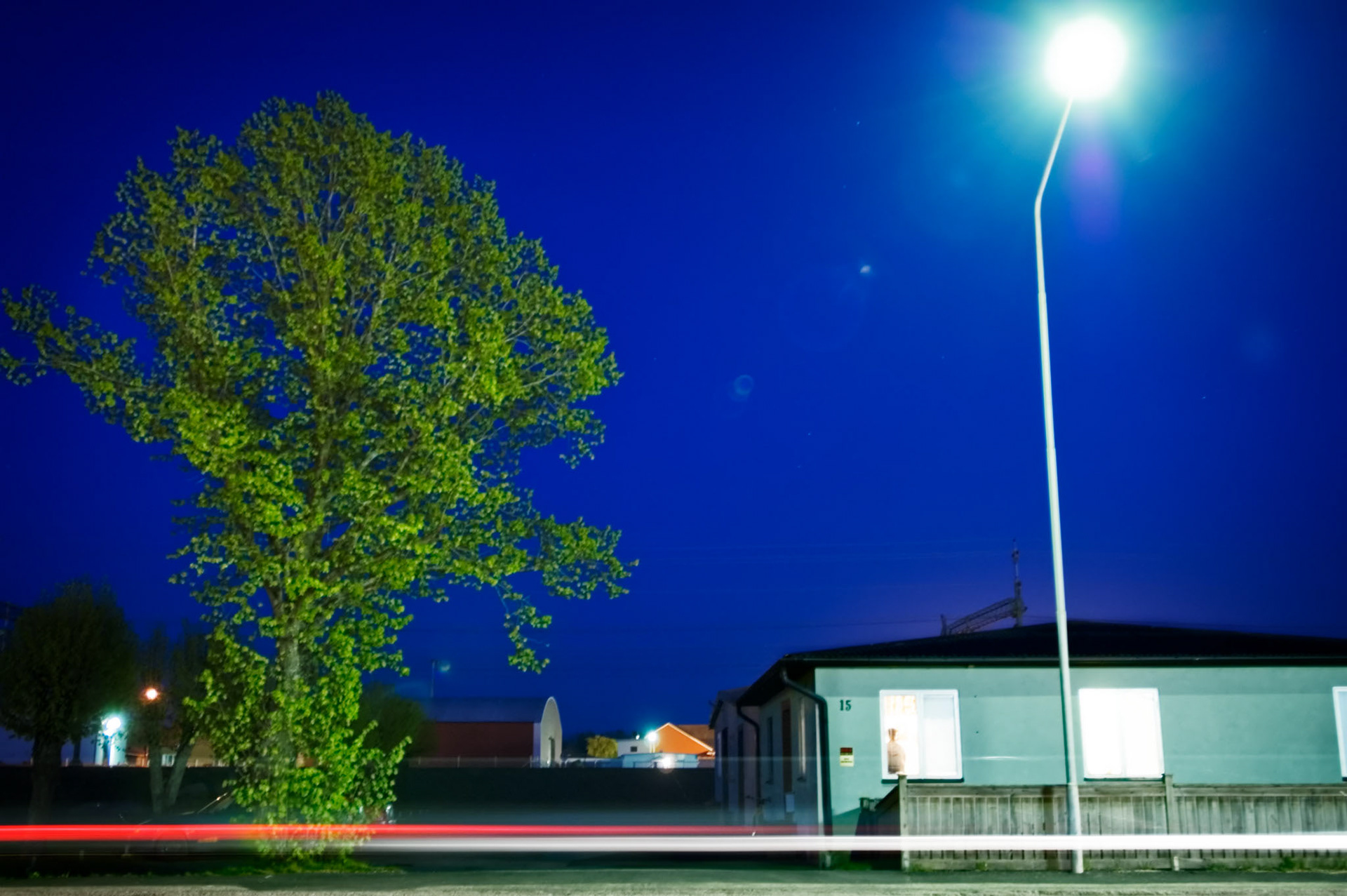
In order to cut costs, they move a cheaper house. What they do not know is that the house is not approved for residential use, and that in less than one year they will have to move out because the landlord refuses to repair a sewer leakage in the basement.
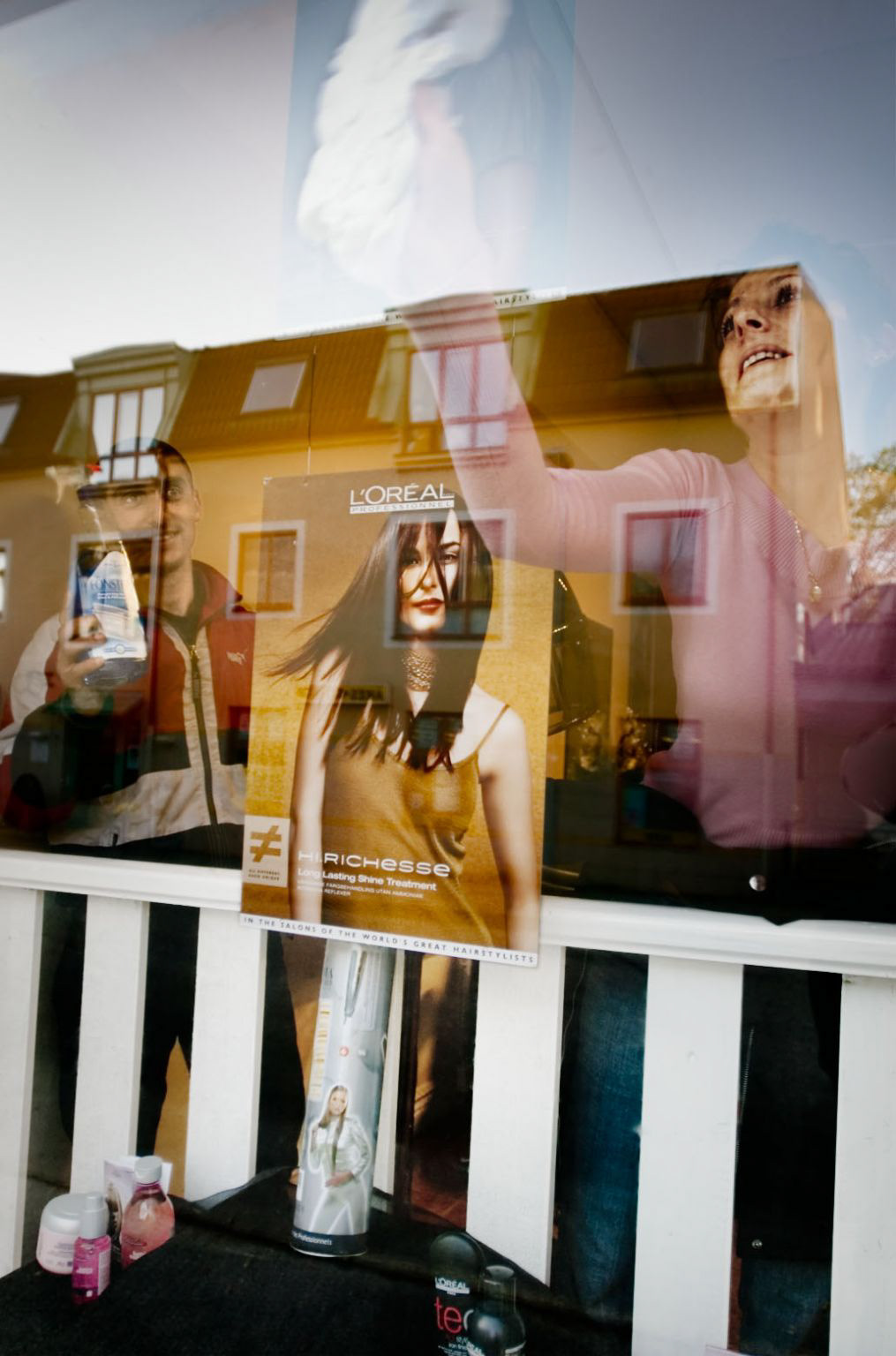
Mimoza has decided to open her own hairdressing salon. After an optimistic and hectic summer, the salon is ready to open in early autumn 2006.
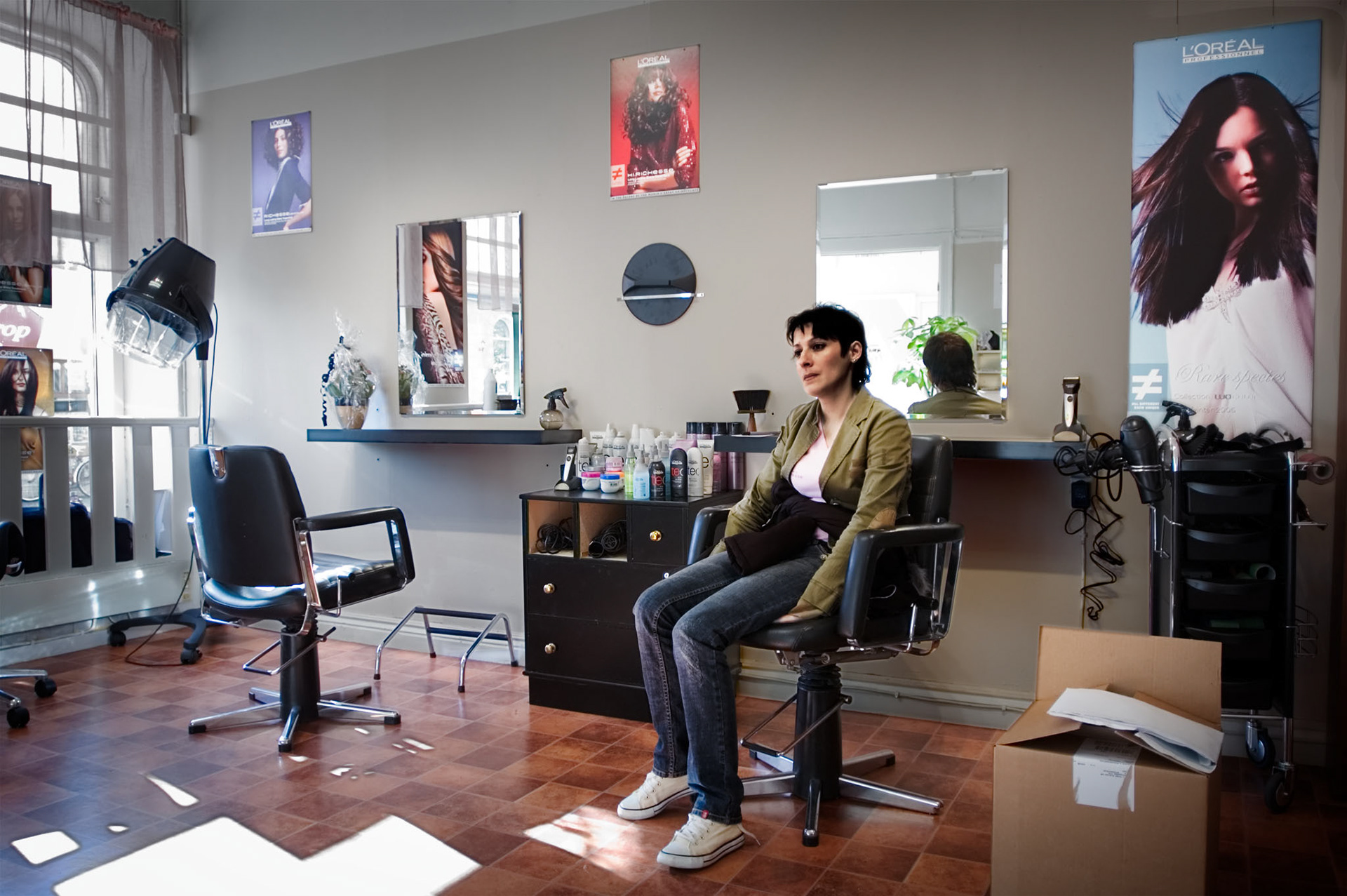
No clients during the first day. There was not enoough money was for advertising. Suddenly, the future becomes, once again, a big question mark.

The relationship with Fanel is wearing out more and more. The warmth there once was between them is almost gone. Mimoza has begun thinking about separating.
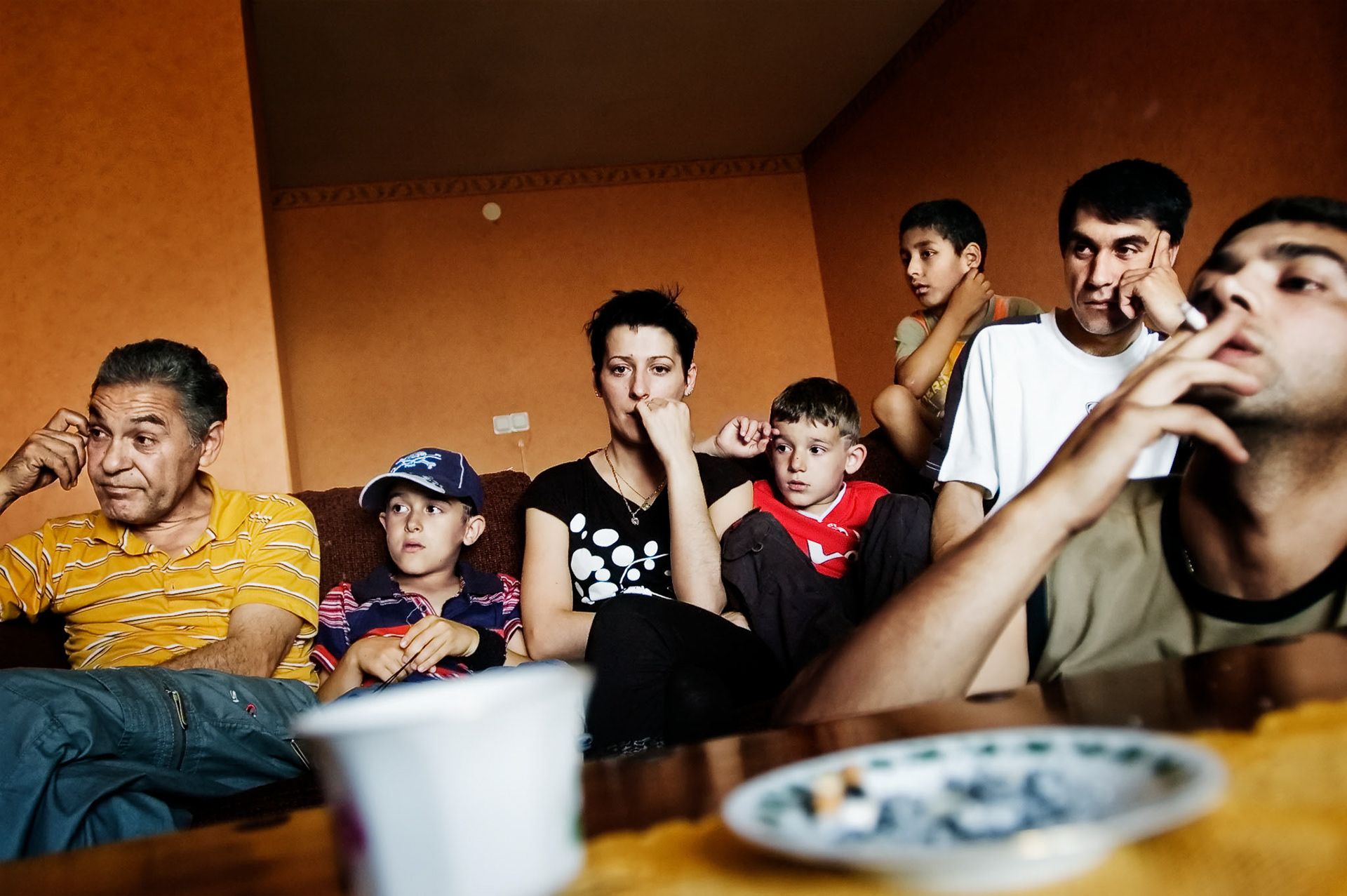
The salon is not going as well as Mimoza had hoped for, and Fanel has begun to realize that he must work. He has done a couple of unenthusiastic attempts to find a job, but this time he had bad luck. He and two Romanians he recruited went to Värnamo (200 km south of Töreboda) to work as painters. Once there, the employer actually wanted them to smuggle alcohol into Sweden. When they refused, they were “fired”.
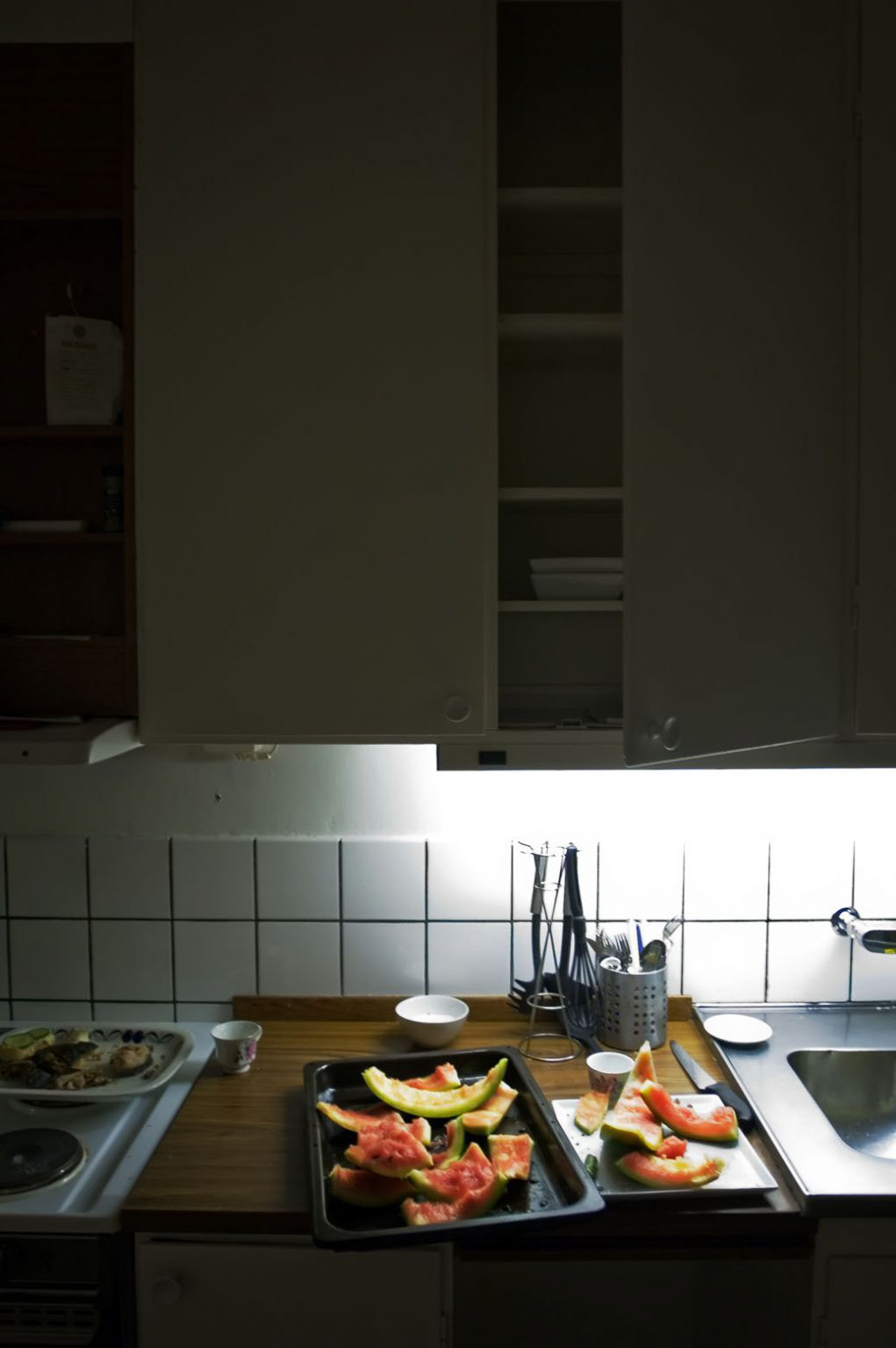
The Romanian workers have no money to return home, so they stay at Mimoza’s for a couple of weeks even if the only money available is the meager income from the salon.
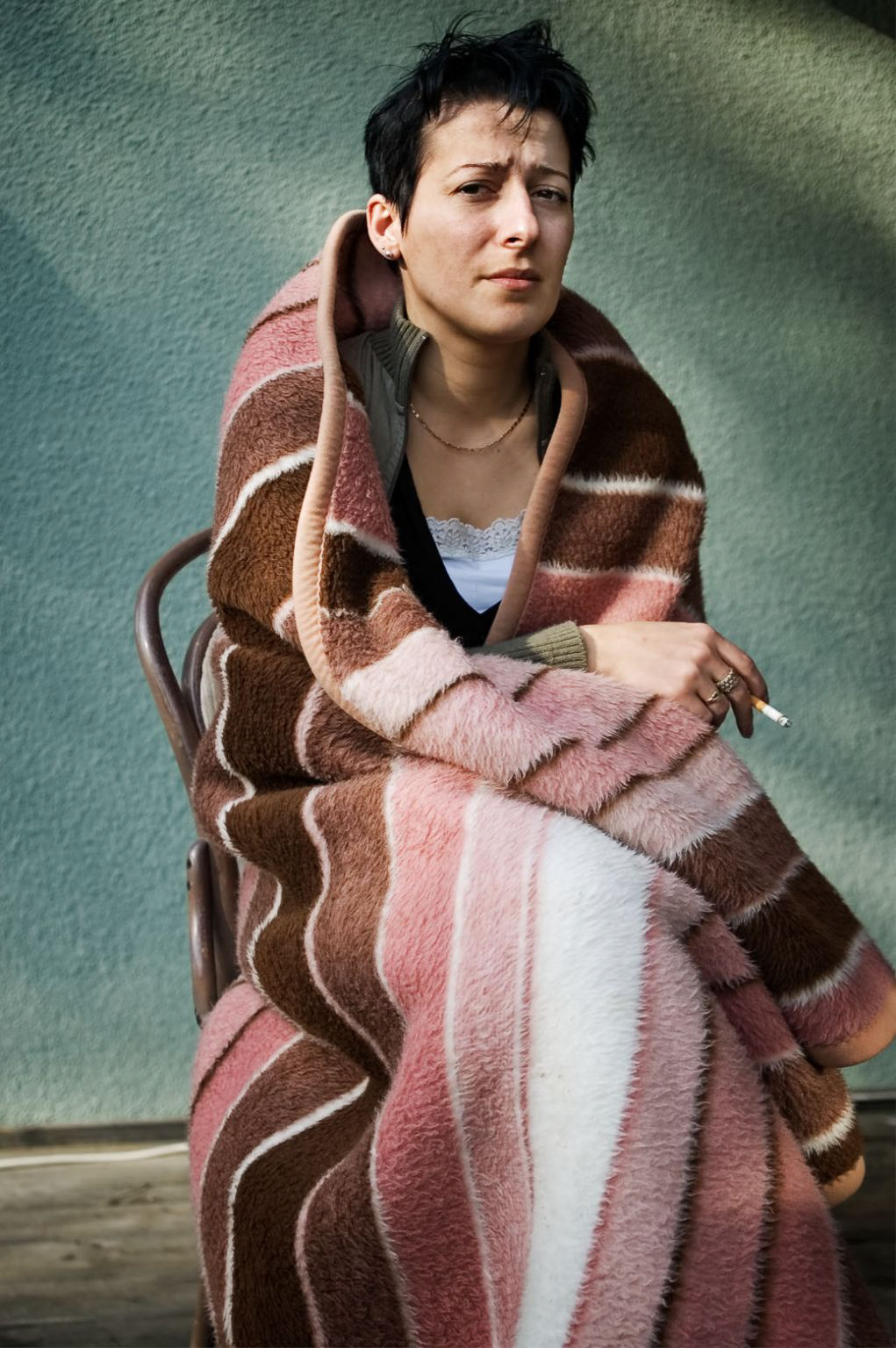
All responsibility falls upon Mimoza, she is the pillar that supports the family. The question is how long she will be able to hold up.
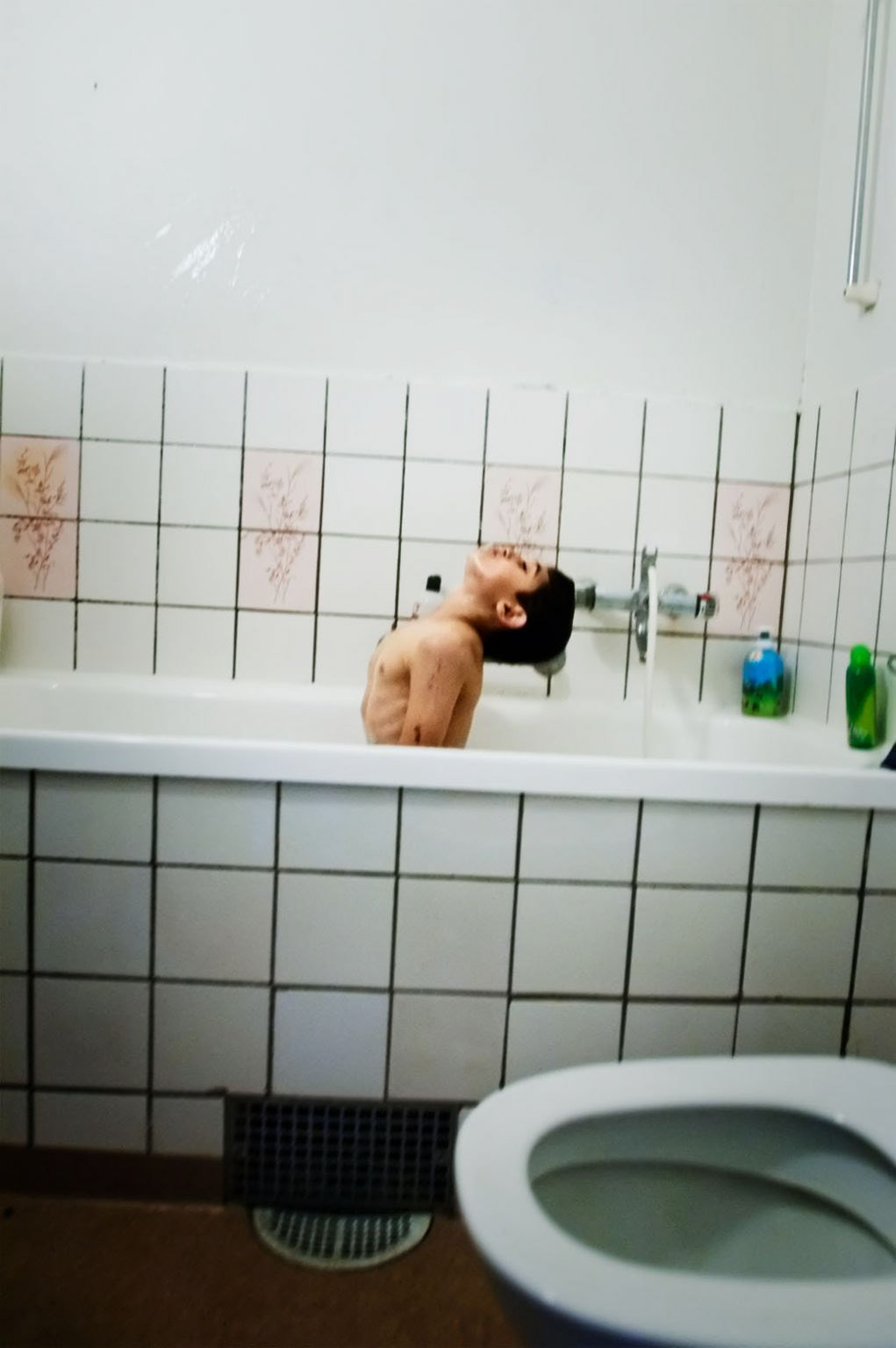
Markeljan, the oldest boy, was very sick due to the mould caused by the sewer leakage in the basement of the old house. After just a couple of days in the new apartment he feels much better.
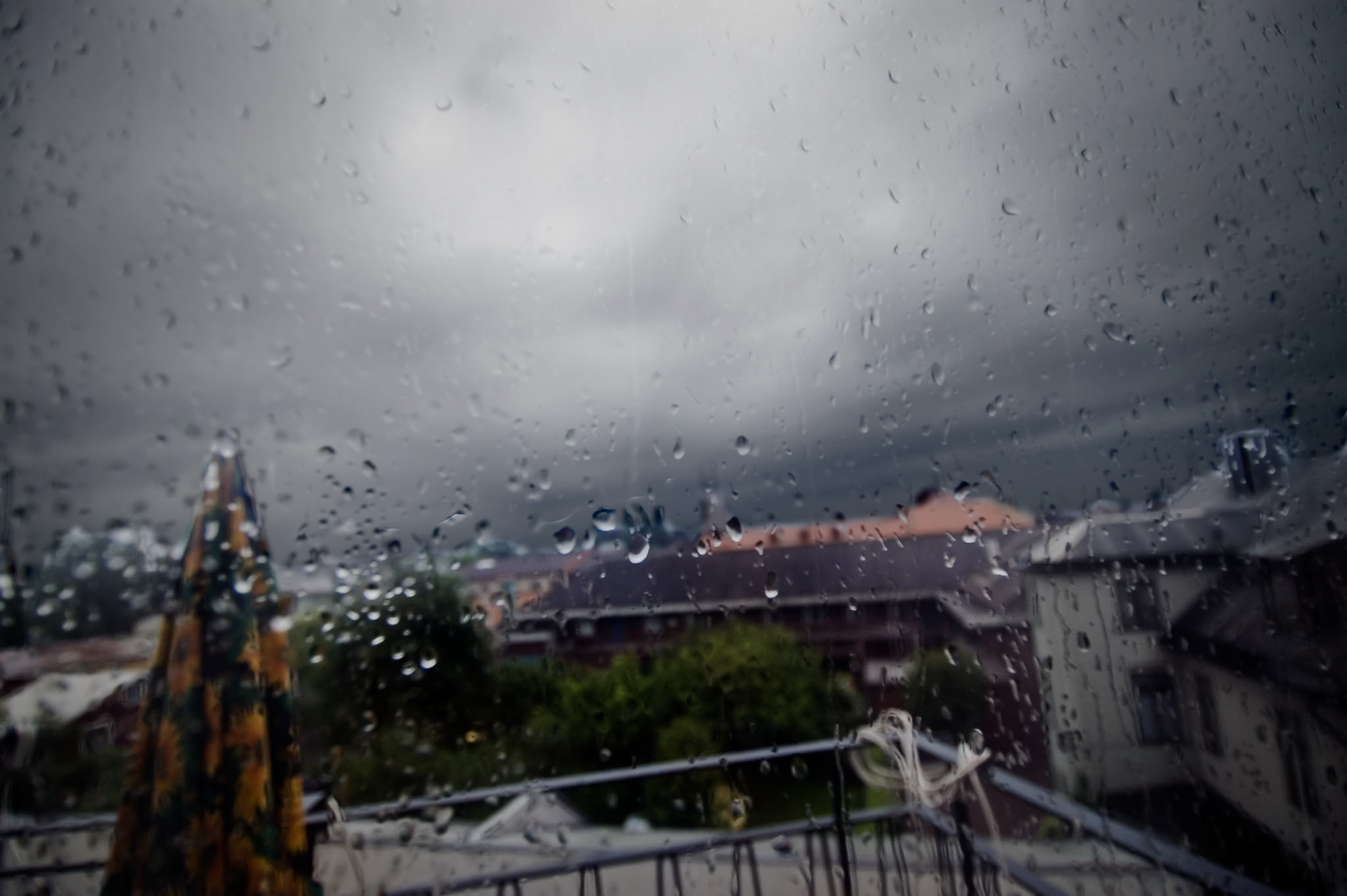
Midsummer day. It’s uncertain whether the insurance will cover all the furniture and clothes that they had to be thrown away. They bought new beds for the kids, but they had to borrow money from friends in order to be able to buy food.
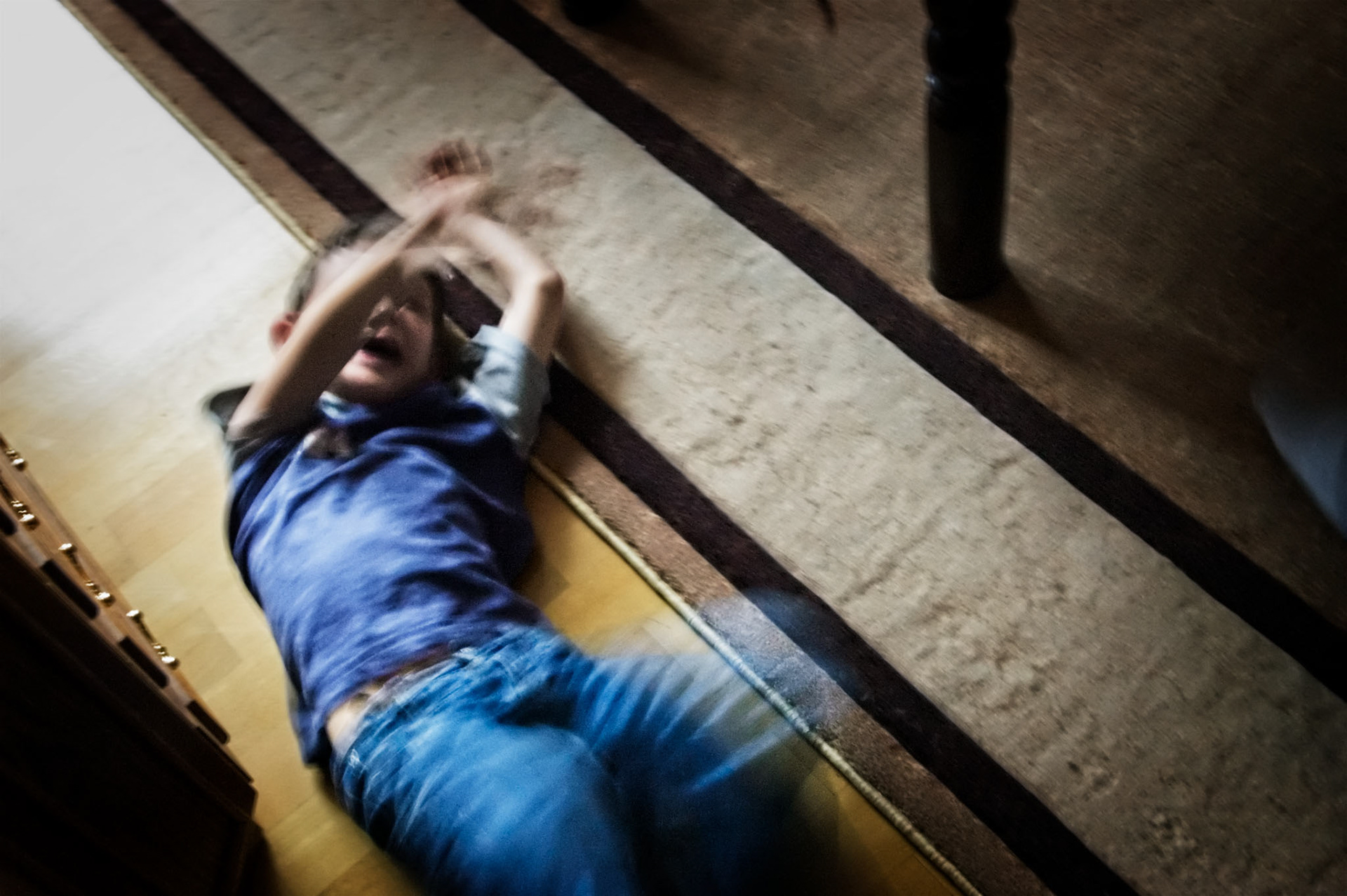
The asylum process has left its traces on the children.Especially on Eugen, who often has sudden outbursts, and difficulties in adjusting to rules.
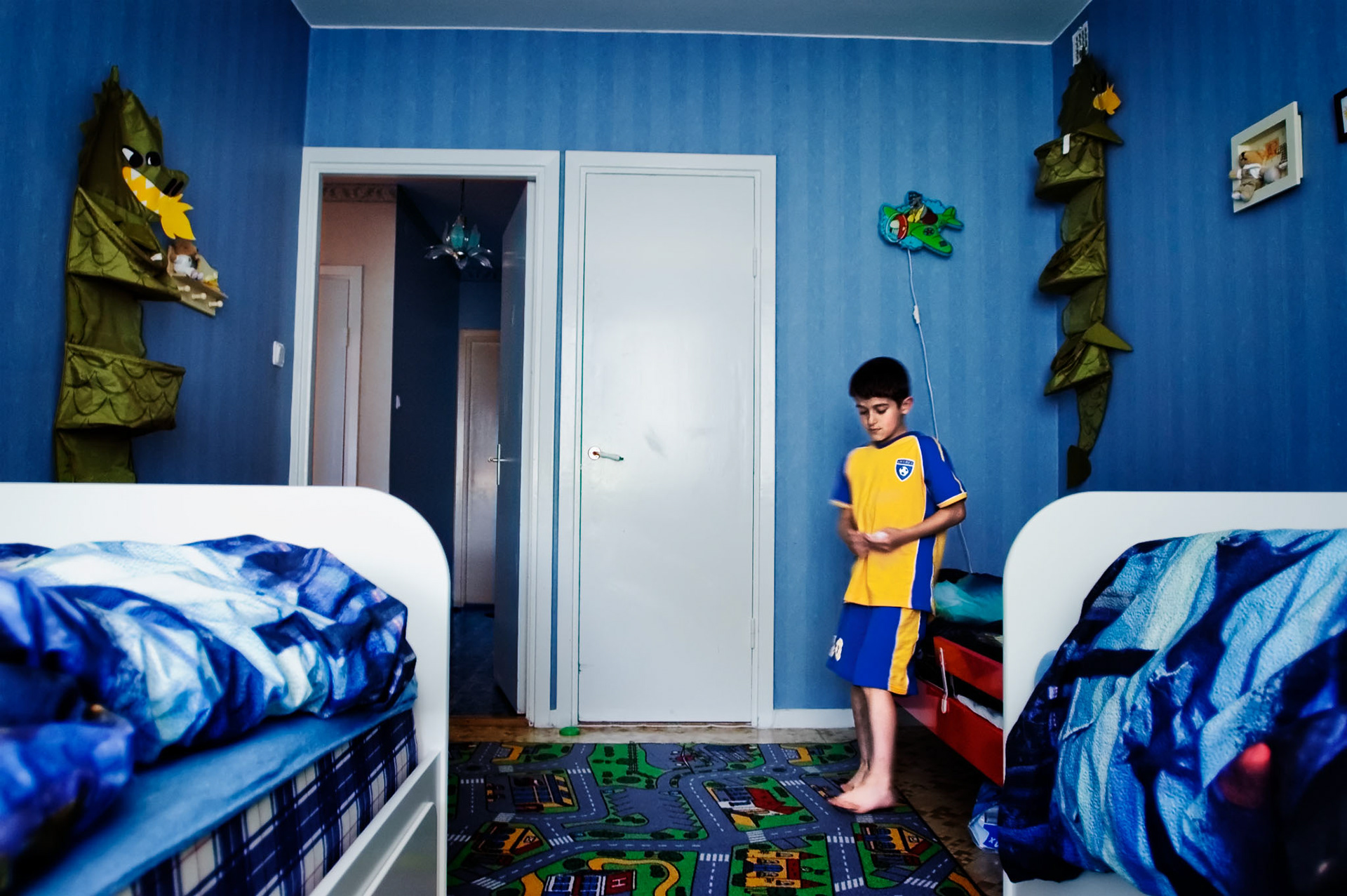
“I am not Swedish” says Markeljan, who has never been outside Sweden. “Why? I don’t know, it’s just like that”.
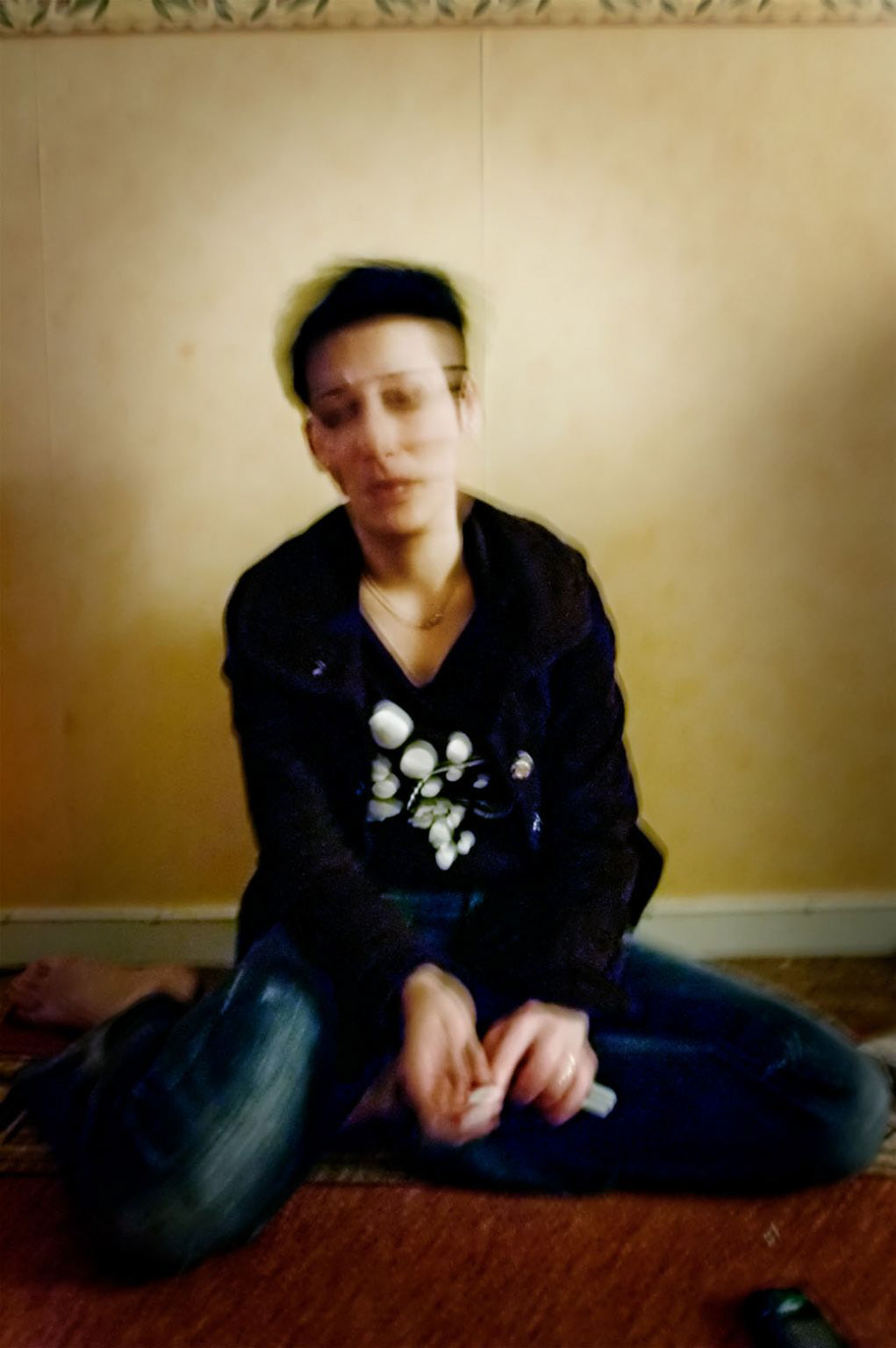
After more than nine years, Mimoza’s family took contact with her again. Since then, she’s making efforts in order to send money for her brother’s expensive education in Kosovo. But now it is just not possible. The few hundred Swedish crowns left in the bank account are for food. Late one night she receives a text message from her mother: “I wish I had never given birth to you”.

Two and a half years have gone since Mimoza obtained the residence permit. But her life isn’t as she had pictured it. “I thought it would be better… a better economy… and maybe more relaxed…”.
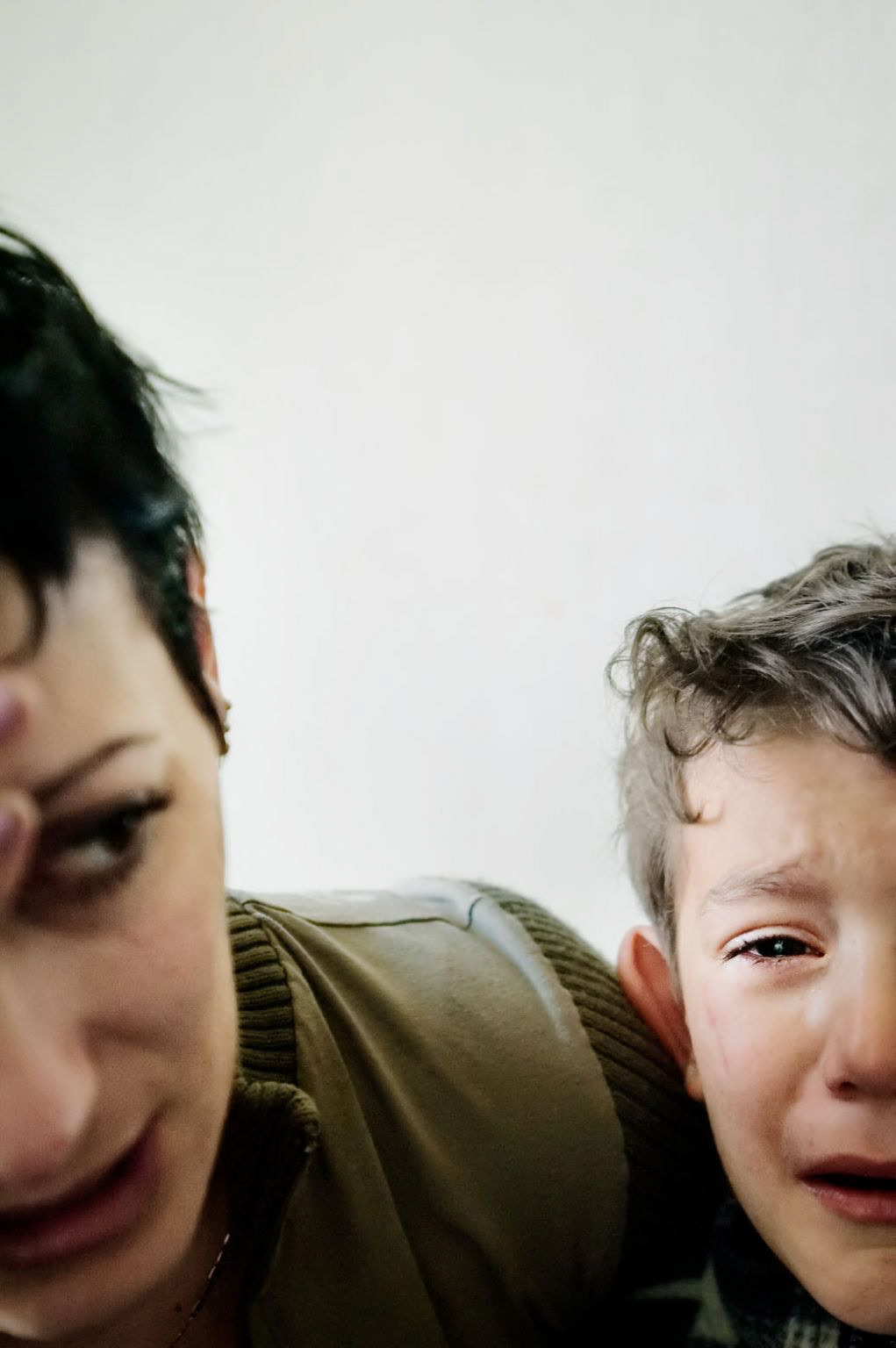
“I need to do something to get out from this routine of coming home, clean, cook and take care of the children. I want to leave Töreboda, here there are no possibilities for anything”.
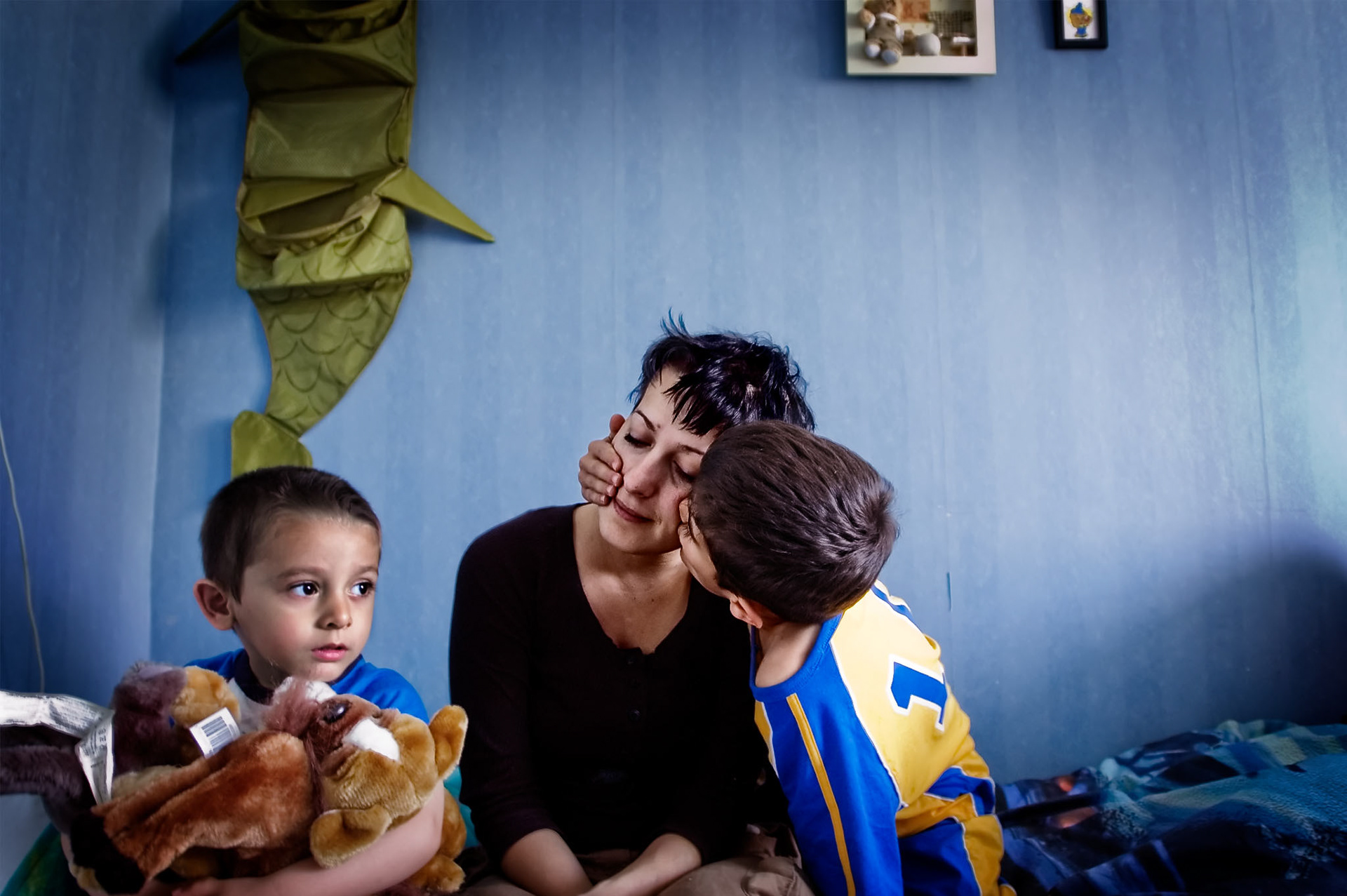
Mimoza feels relieved after closing the salon… no more bills she can't afford to pay. The problem is that the debt to the bank still remains, she will have to pay 2,000 Swedish crowns (200 Euro) a month… for 23 years“It was not worth it” says Mimoza reflecting on all she has had to go through in order to stay in Sweden. “But now I am here for at least 23 years more…”, she adds with a tired laugh
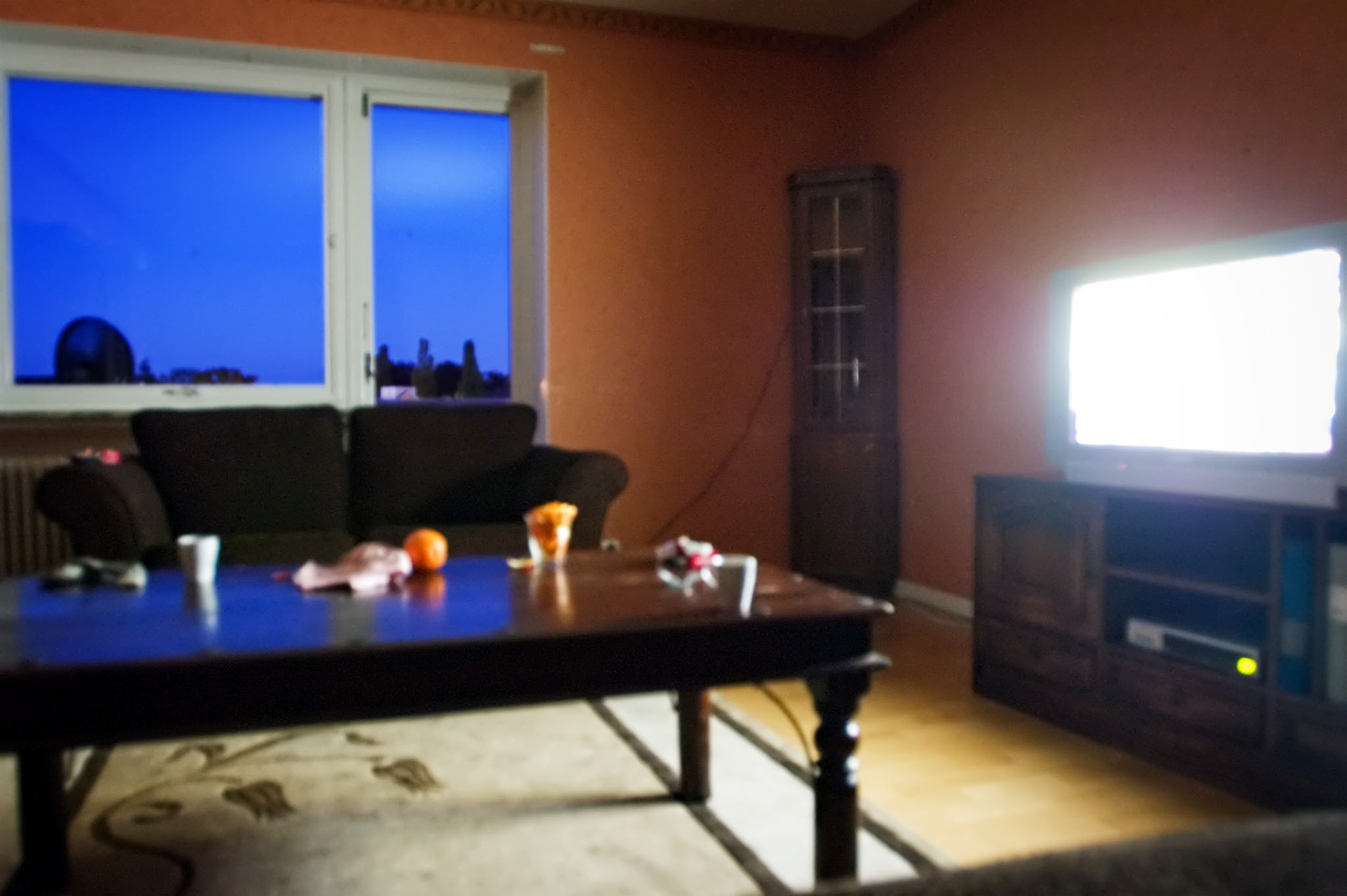
“It was not worth it” says Mimoza reflecting on all she has had to go through in order to stay in Sweden. “But now I am here for at least 23 years more…”, she adds with a tired laugh.
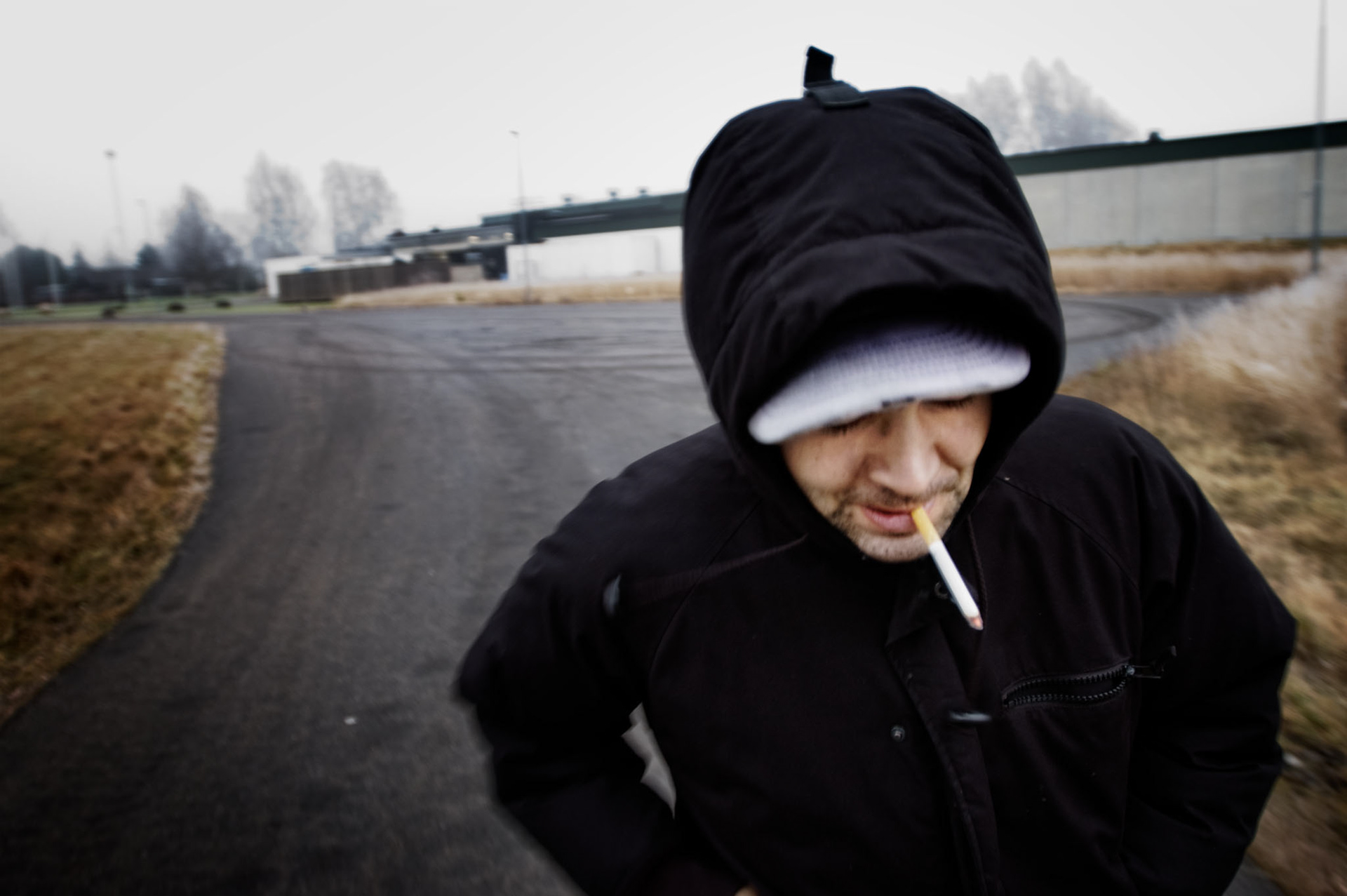
Fanel has begun a new job at a factory. This time he takes the job seriously is working 10-12 hours a day. With the overtime supplement he manages almost to double his salary. The only problem is that he only gets short-term contracts that have to be renewed monthly.
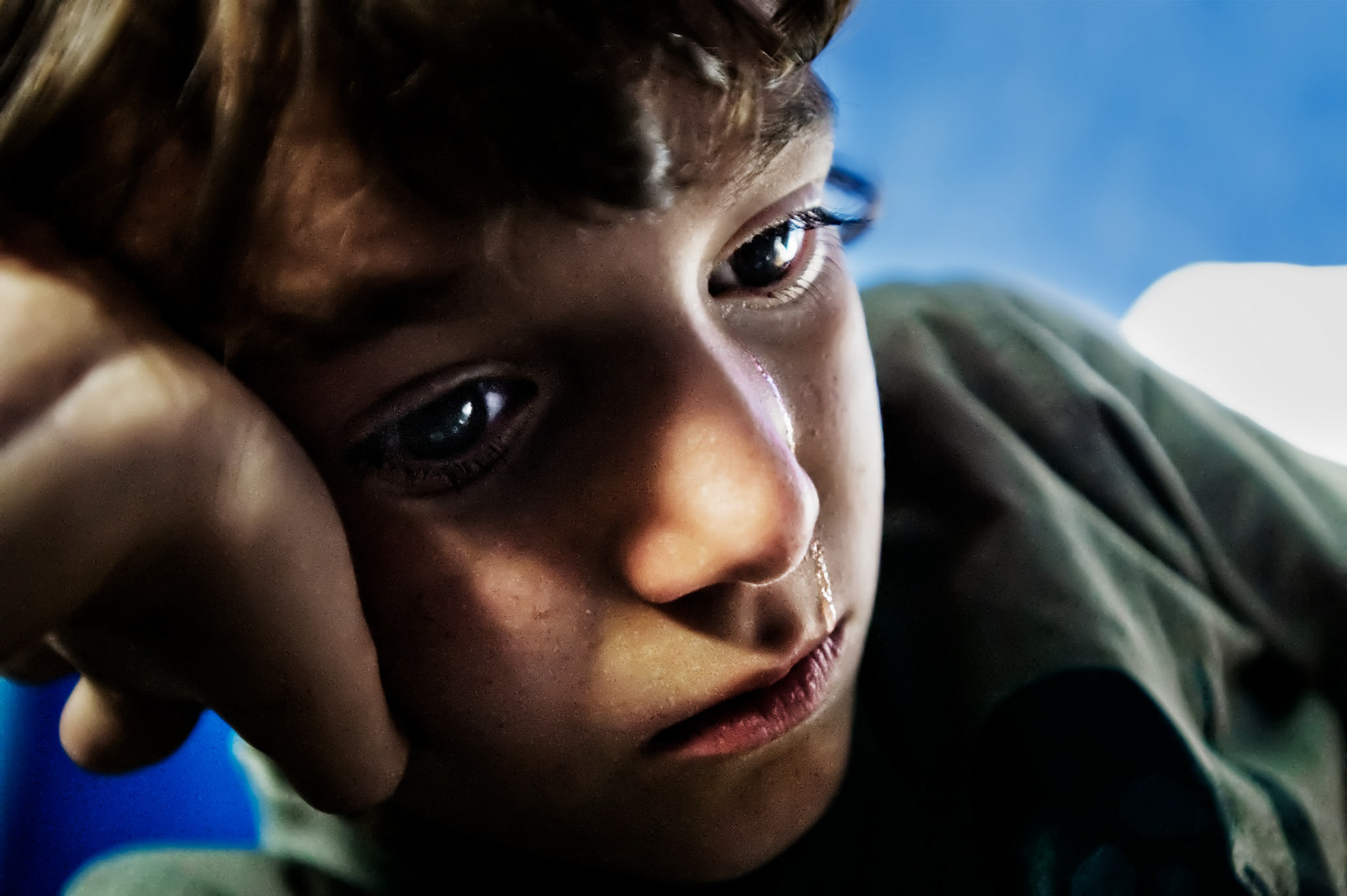
Despite his temper, Eugen is an introvert and sensitive child, and is in need of a deeper kind of affection than his brothers.

Mimoza has been feeling depressed for quite a long time now. “I don’t know what I’m going to do, I cannot take it anymore...” has become her own kind of mantra.
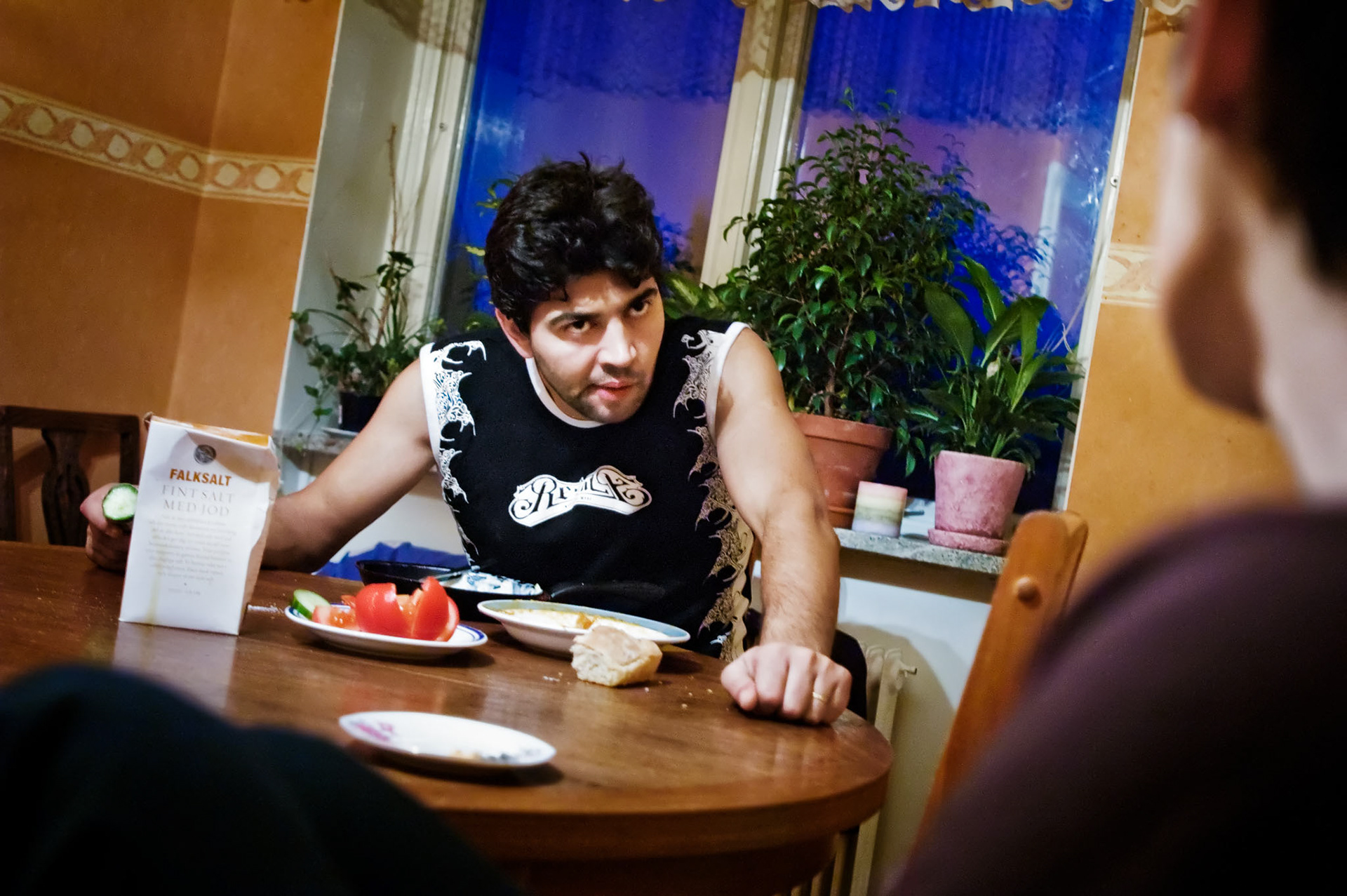
Fanel wants to buy a car, but Mimoza opposes. “It's my money now!” says Fanel. Still, they will not buy a car for a while.
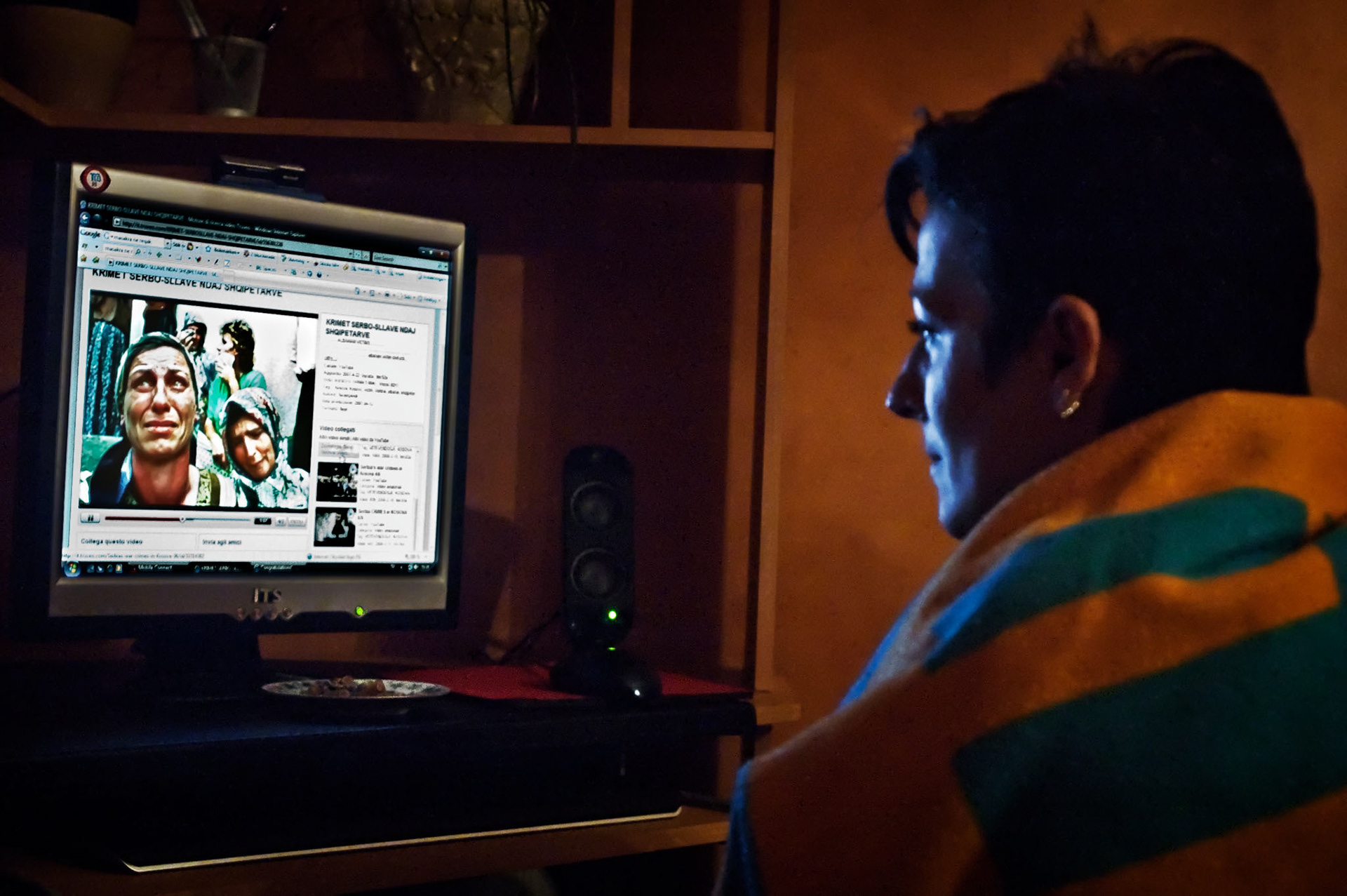
Sometimes, Mimoza feels guilt for not having been in Kosovo during the war. Then, and watches videos of massacres from the war in Youtube for hours.

They have received a small amount of money from the Swedish Church for presents and Christmas shopping. Eugen is impatient to mount the Christmas tree so they can put the presents under it.
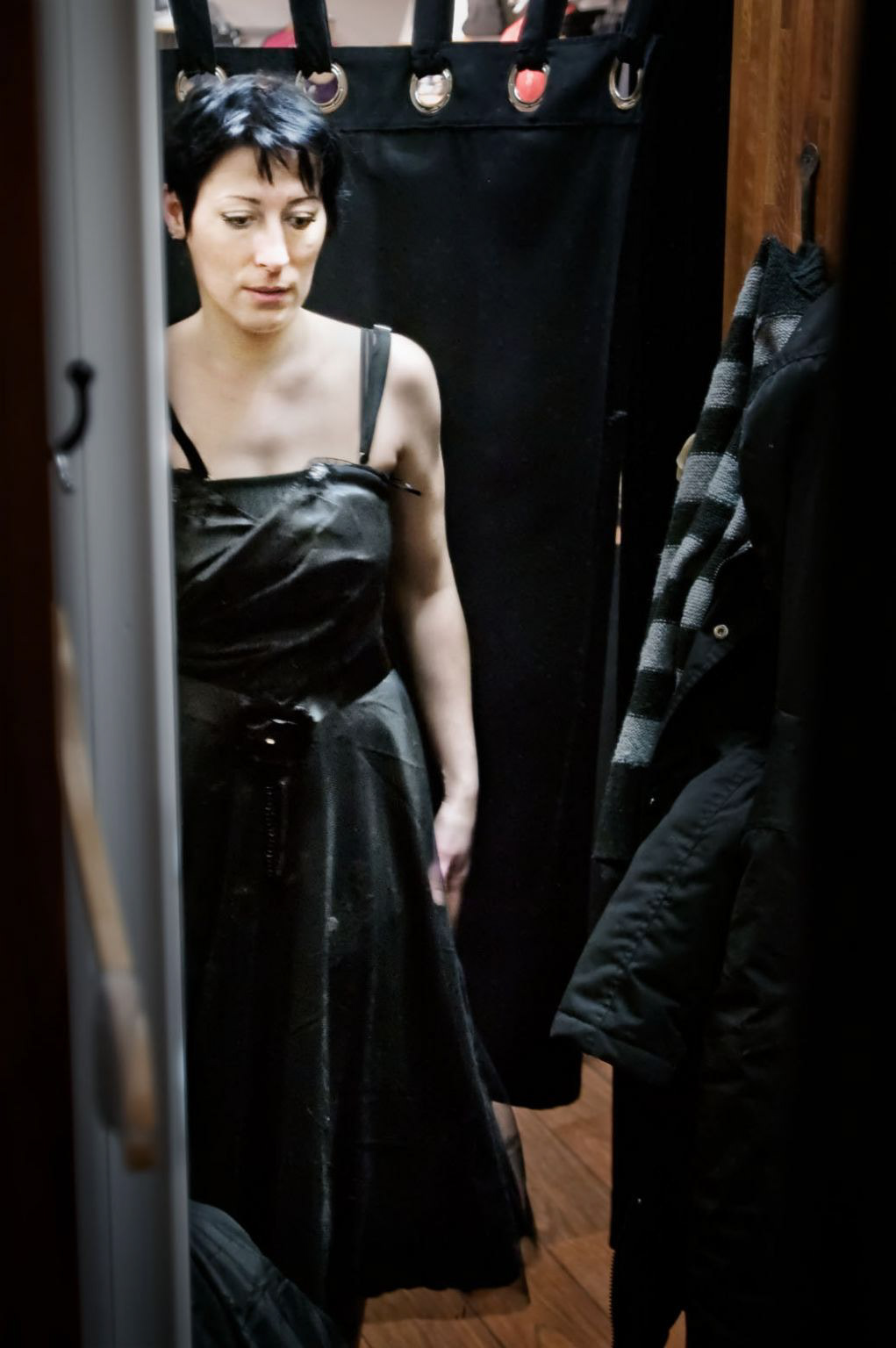
A friend gave Mimoza money specifically for a dress to wear at a reunion dinner of the Kosovar community in January. Mimoza wants to impress her friends and buys a beautiful black dress. The next day, she goes back to the store and returns it. “It was too expensive”, she says with a low voice.

The relationship with Fanel has hit rock bottom. They actually did separate, but Fanel came back after just a few hours.

